Home » News
News
12. decembar 2025.
STUDY VISIT FOR REPRESENTATIVES OF UKRAINE AND MOLDOVA – EXPERIENCE OF THE REPUBLIC OF SERBIA IN THE EUROPEAN INTEGRATION PROCESS OF THE RAILWAY SECTOR
The Transport Community organized a study visit to the railway institutions of the Republic of Serbia for representatives of Ukraine and Moldova from 26 to 28 November 2025 in Belgrade. The event was organized within the framework of the project "Participation of Georgia, the Republic of Moldova and Ukraine in the Transport Community" with the aim of providing support for the progressive integration of Ukraine and Moldova in the Transport Community, and thus their closer association with the EU transport markets within the enlargement process.

During their three-day visit to Serbia, railway experts from Ukraine and Moldova had the opportunity to meet with representatives of the Ministry of Construction, Transport and Infrastructure, Serbian Railway Infrastructure, Directorate for Railways and Traffic Accident Investigation Centre. The presentations by representatives of the Serbian railway sector focused primarily on the experience of the Republic of Serbia gained during the transposition of European Union railway regulations into domestic legislation and the challenges encountered in their implementation.
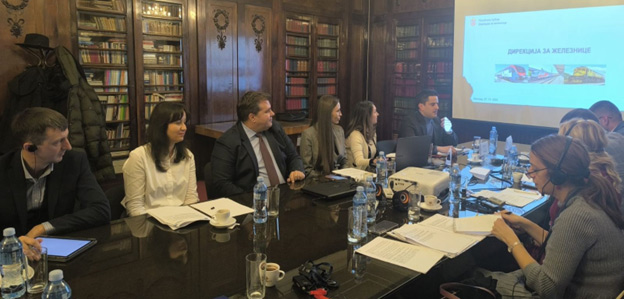
At the meeting at the Railway Directorate, the attendees were welcomed by Mr. Aleksandar Adamović, Acting Director of the Directorate, who thanked the Transport Community for the invitation to participate in the project, emphasizing the importance of such gatherings, which provide an opportunity for the exchange of experiences among railway experts and their contribution to strengthening institutional capacities and improving the railway sector in general. Representatives of the Railway Directorate held a series of presentations and introduced the participants of the study visit to their activities in the field of railway market regulation, licensing of railway undertakings, passenger rights, issuing safety certificates and authorisations, supervision of the safety management system and issuing authorisations for fixed structural subsystems.
12. December 2025.
IRG-RAIL – PLENARY ASSEMBLY HELD IN BARCELONA, SPAIN, 18 - 19 NOVEMBER 2025
IRG-Rail’s Plenary Assembly met for its autumn session in Barcelona, chaired by Ms. Cani Fernandez and Ms. Patricia Cordovilla from CNMC, Spanish Regulatory Authority for Railways. The meeting welcomed the representatives of 29 regulatory bodies.

Source: IRG-Rail
Over the two-day meeting, the working groups presented their updates on the 2025 work program and proposed the work program for 2026. As part of its regular activities at the level of permanent working groups, IRG-Rail addresses the most significant issues related to market regulation, such as access to railway infrastructure and service facilities, track access charges, monitoring of the railway market and emerging legislative proposals at the European Union level. One of the key topics of discussion was IRG-Rail's position on the proposal for a new European Union regulation on the use of railway infrastructure capacity within the single European railway area ("Capacity Regulation" (EU COM(2023/443)), which represents an important step in promoting the efficient use of railway capacity in Europe. Based on the analysis of the proposal for the aforementioned regulation, IRG-Rail supported the objectives related to better management of railway infrastructure capacity and better coordination of cross-border traffic management, emphasizing, however, that the future regulation must not affect the role, functions and independence of regulatory bodies.
Moreover, the Plenary Assembly adopted four important reports that contribute to the development of a single European railway area:
- ”Report on Monitoring Rail Freight Corridors”
- ”Report on service facility data and the development of the RINF”
- ”Storage sidings: a report on market structure, access conditions and charges, with a view to scarce capacity”
- “Performance Schemes in rail: a European overview“.
IRG-Rail’s documents can be found on the organisation’s website (https://irg-rail.eu/irg).
The next IRG-Rail Plenary will be held in June 2026.
The Independent Regulator’s Group – Rail (IRG-Rail) currently has 31 members and sets out a framework for an informal cooperation network of independent railway regulatory bodies in order to exchange experiences and opinions on key issues related to regulation and development of competition on the European railway market. The Directorate for Railways has been a member of IRG-Rail since 2016.
16. October 2025.
European Rail Safety Days 2025
Representatives of the Directorate for Railways participated in the European Rail Safety Days 2025 conference, which was held from 1 to 3 October 2025 in Krakow, Poland, organized by the European Union Agency for Railways (ERA).
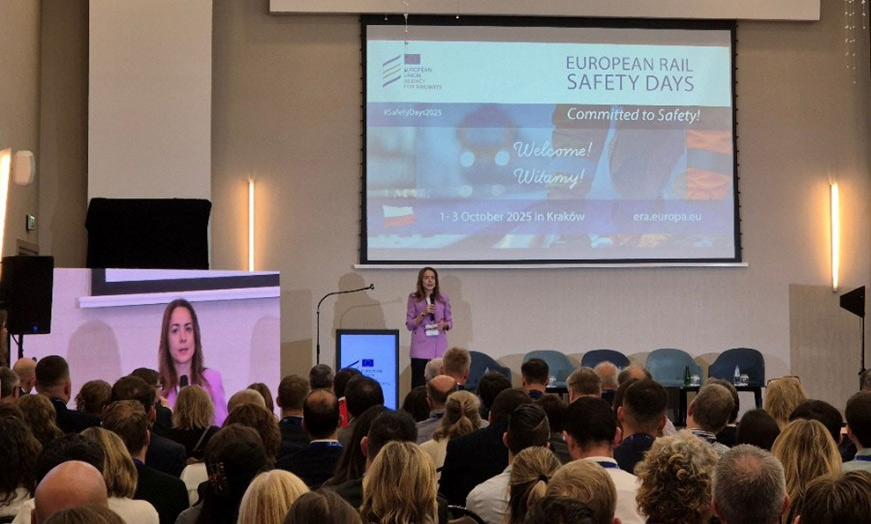
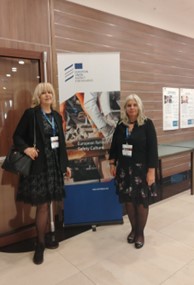
The conference was opened by the Executive Director of ERA, Oana Gherghinescu, who has been at the head of this institution since June 2025.
This year's conference focused on understanding workplace reality within railways and the related operational risks that it might generate.
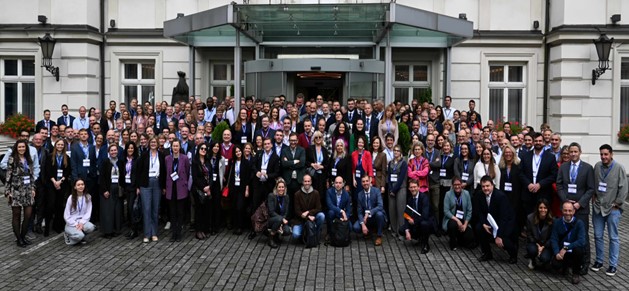
Moreover, a broad selection of presentations and panel discussions focused on how to improve performance in the field of human organisational factors (HOF) in railways through monitoring, hazard reporting, human error analysis and competence management.
The conference also saw the presentation of the Women in Rail Award for 2025, organised by the European Commission, the European Union Agency for Railways (ERA), Europe’s Rail (EU-Rail), CER, UNIFE, EIM and the Federation of European Train Drivers’ Unions (ALE). The award recognises outstanding individuals and organisations that are contributing to progress in the areas of gender equality, technical innovation and educational empowerment in the rail sector.
This award empowers future leaders and drives systemic change across the industry, encouraging greater inclusion of women in the rail sector. The 2025 edition included four categories, each reflecting a strategic priority for a more inclusive and sustainable rail industry. This year, a new category was also introduced — Next Generation Rail Award — which reflects the growing commitment to developing talent from early education to professional careers, ensuring that girls and young women are supported to thrive in the sector.
17. July 2025.
ОTIF – COMMITEE OF TECHNICAL EXPERTS AND WG TECH MEETING
The OTIF Secretariat organized the 17th Session of the Committee of Technical Experts (CTE) and the 55th Session of the Working Group TECH (WG TECH) from 17 to 19 June 2025. The meetings gathered representatives of the OTIF contracting states, European Union Agency for Railways, Organisation for Cooperation of Railways (OSJD), European Commission (ЕC), Community of European Railway and Infrastructure Companies (CER), Association of Notified Bodies (NB-Rail), International Union of Railways (UIC), etc.

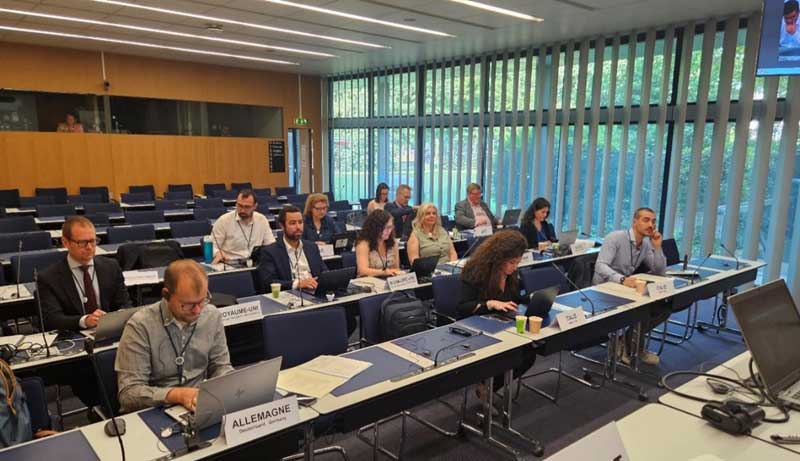
At the very beginning, the Secretariat informed the participants of the session that the General Assembly had elected a new Secretary General of OTIF, Mr. Alexander Kuzmenko.
OTIF's strategic goals were also presented with specific measures/proposals for their achievement and expected results by 2030:
- Ensuring the effective and uniform application of the OTIF regulations,
- Extending the application of the OTIF regulations to the widest possible geographical area,>
- Ensuring that the OTIF regulations remain relevant over time,
- Strengthening the leading role of OTIF in international rail transport and contributing to finding synergies with other relevant international organisations and associations,
- Contributing to the harmonisation and unification of the system of international railway regulations.
The meeting of the Working Group TECH (WG TECH) discussed the following documents: Draft amendments of UTP WAG, Draft amendments of the uniform form of vehicle type authorisations and authorisations for placing in service, Draft amendments to the instructions for the application of the UTP LOC&PAS, Draft amendments to the instructions for the application of the UTP PRM and Handbook for the application and implementation of the APTU and ATMF Uniform Rules.
The work on these documents will continue over the next two sessions in order to be completed and submitted to the Commission of Technical Experts for adoption at its next session in June 2026.
It is also important to note that the key changes to the Draft amendments to the UTP WAG relate to the transposition of the provisions relating to freight wagons for the transport of dangerous goods from the RID that are contained in Annex 1 of this document.
The next WG TECH meeting is scheduled for 9 September 2025 in Bern.
6. June 2025.
LAUNCHING OF REGIONAL RAIL REGULATOR NETWORK
The European Bank for Reconstruction and Development (EBRD) and Permanent Secretariat of the Transport Community organized the Western Balkans Rail Sector Policy Conference in Podgorica on 29 May 2025. The event brought together the representatives of railway regulatory bodies, transport ministries, operators, infrastructure managers, international financial institutions and EU institutions to advance the region’s railway sector.

Source: Permanent Secretariat of the Transport Community
The main objective of the conference was the signing of a Memorandum of Understanding establishing the Western Balkans Regional Network of National Safety Authorities, Railway Regulatory Bodies and National Investigation Bodies.
The newly established network aims to strengthen regional cooperation in railway safety, accident investigation and regulation of railway market, as well as to promote functional independence and capacity of national regulatory and investigation bodies in the railway sector. Besides that, the network shall to contribute to the alignment of the region with the standards of the European Union in the field of railway transport and development of cooperation with institutions such as European Union Agency for Railways (ERA) and Independent Regulators’ Group – IRG-Rail.
The network will serve as a platform for continuous dialogue and cooperation. It will convene at least twice per year, with the possibility to establish technical subgroups to address key topics such as safety standards, accident reporting and opening of the railway market.
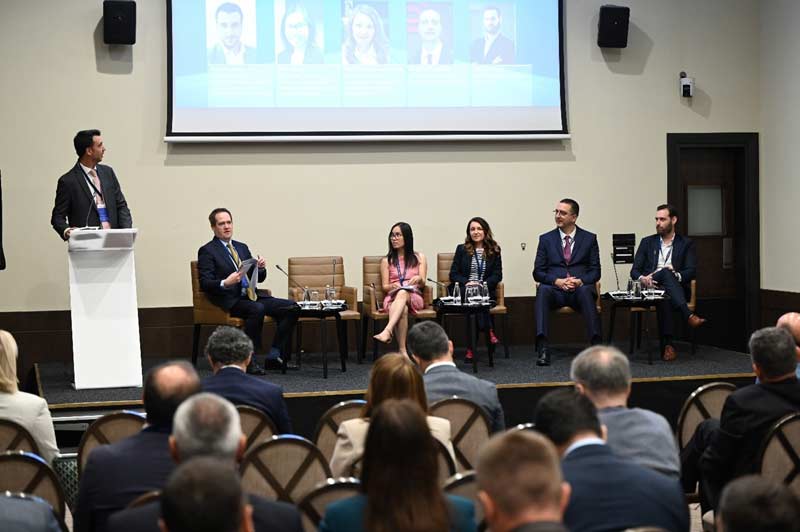
Source: Permanent Secretariat of the Transport Community
The conference presented a successful example of the opening of the railway market in Spain, which, with the entry of new operators into passenger transport on high-speed lines, led to better quality service, an increase in the number of departures and a drastic reduction in train ticket prices.
The Market Monitoring Working Group of the Independent Regulators’ Group – IRG-Rail, presented the functioning of this European network of railway regulatory bodies, as well as the main indicators that the working group monitors and publishes within the framework of the Annual Report on Railway Market Monitoring. The Directorate for Railways, as a regulatory body, regularly collects and submits data for the Republic of Serbia for the purposes of preparing this Annual Report.
20. December 2024.
Workshop - TSI Open Days Budapest 2024
Transport Community and the European Railway Agency (ERA) organized from 27 to 28 November 2024 the TSI Open Days Budapest 2024 workshop on the latest package of technical specifications for interoperability - TSIs (2023) and the latest amendments to key TSIs.

The workshop was held in Budapest, Hungary, and brought together a significant number of representatives of National Safety Authorities (NSAs), manufacturers and infrastructure managers from EU member states and the Western Balkans and was opened by the Director of the Hungarian NSA, László Veszprémy.
During the workshop, participants had the opportunity learn about the content of the latest TSI package (2023), which includes Commission Implementing Regulation (EU) 2023/1694, Commission Implementing Regulation (EU) 2023/1695, Commission Implementing Regulation (EU) 2023/1696 and Commission Implementing Regulation (EU) 2023/1693.
This package introduced multiple changes to the legislation in the EU railway sector and these changes may have a significant impact on future projects.
The most extensive changes were made in Commission Implementing Regulation (EU) 2023/1694 amending TSI WAG, TSI INF, TSI PRM, TSI ENE, TSI LOC&PAS, TSI NOI and Implementing Regulation (EU) 2019/777 (RINF).
The latest TSI package (2023) brings amendments to the existing TSIs, except for Commission Implementing Regulation (EU) 2023/1695 (TSI CCS) which repeals Regulation 2016/919 and was adopted as a new TSI CCS.
Besides a large number of changes, an amendment to Implementing Regulation (EU) 2019/777 states that ERA will update the RINF application by 15 December 2024 and thus enable partial updates of data corresponding to changed parameters, in order to allow infrastructure managers to update relevant information as soon as they are available, as well as dedicated notification of railway undertakings regarding changes in the RINF application.
Moreover, the new Annex D of Commission Implementing Regulation (EU) 2023/1694, with regards to TSI NOI, prescribes the identification of quieter routes, as well as the obligation of EU Member States to submit a list of quieter routes to the Agency and ensure that infrastructure managers list them in the RINF (application) in accordance with Implementing Regulation (EU) 2019/777.
In addition to the presentation of the TSI package (2023) and the substantial changes to the TSIs, the workshop also emphasized that the trend of cleaning up national regulations and maximum implementation of the TSI continues.
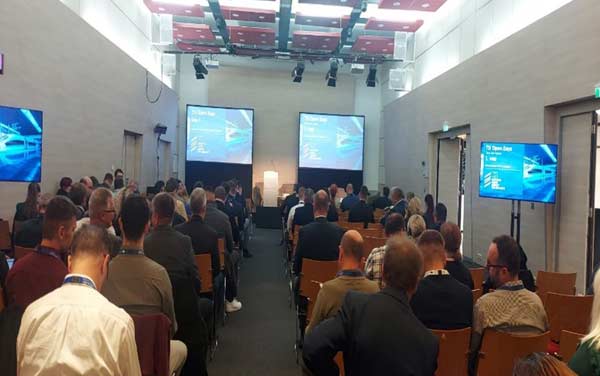
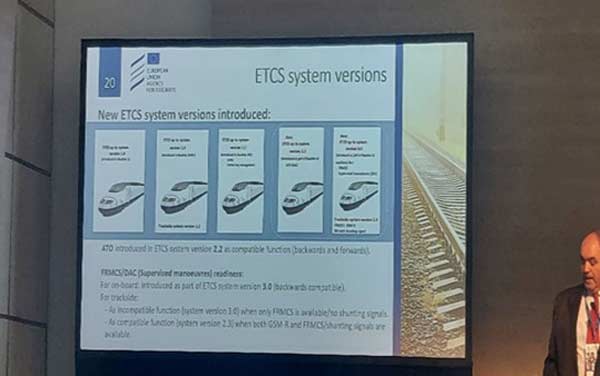
22. November 2024.
WG OTIF: 54th SESSION OF WG TECH IN BELGRADE
With the support of the Chamber of Commerce and Industry of Serbia, the Directorate for Railways hosted the 54th Session of the working group technology (WG TECH) of OTIF (Intergovernmental Organisation for International Carriage by Rail). The WG TECH met on 19 November 2024 in the premises of the Chamber of Commerce and Industry of Serbia in Belgrade, with a possibility of online attendance. The meeting gathered representatives of the OTIF member states, European Commission, European Union Agency for Railways (ERA), Community of European Railway and Infrastructure Companies (CER), Organisation for Cooperation between Railways (OSJD), Transport Community and International Union of Railways (UIC).
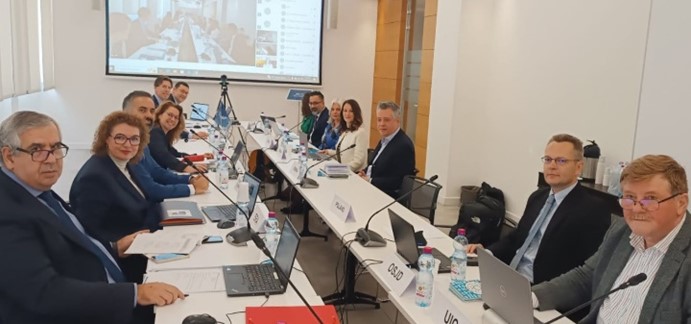
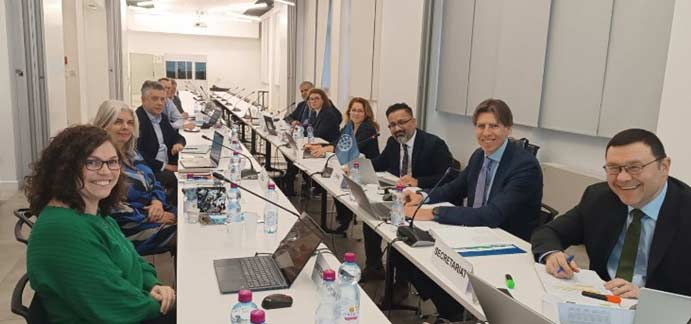
WG TECH of OTIF ensures harmonisation and technical interoperability between the European Union and the OTIF Member States. Through its regular meetings, which are held three times a year, it also facilitates the exchange of views between the Member States, the European Union and various associations and organisations from the railway sector.
Discussions focused in particular on modifications to several Uniform Technical Prescriptions (UTP): the UTP LOC&PAS (locomotives and passenger rolling stock), the UTP PRM (accessibility for disabled persons and persons with reduced mobility), the UTP Marking of railway vehicles and the UTP Infrastructure.
The working group also dealt with updating the application guides for the UTP Wagons and UTP Noise, as well as the ”Handbook for implementation and application of the APTU Uniform Rules and ATMF Uniform Rules (Appendices F and G to COTIF)”.
By working on the development of the APTU and ATMF Uniform Rules, which apply to railway material intended to be used in international traffic, the working group is contributing to the development of technical interoperability beyond the European Union.
OTIF is an intergovernmental organization dedicated to international rail transport and the development of a single railway law in order to connect the countries of Europe, Asia and Africa. It has been active since 1893 and is the oldest international organization in this sector. It currently counts 51 member states, including Serbia, and one associate member.
23 September 2024
IPA WORKSHOP ON CONFORMITY ASSESSMENT IN RAILWAYS, HELD IN BANJA LUKA FROM 10 TO 12 SEPTEMBER 2024
As part of the IPA project, the European Union Agency for Railways (ERA) and the Transport Community organized, in the period from 10 to 12 September 2024, an IPA workshop on conformity assessment in railways in the EU. The workshop took place in Banja Luka and brought together a significant number of representatives of national safety authorities and infrastructure managers from the countries of the Western Balkans, Georgia and Turkey.

During the workshop, the participants had the opportunity to familiarize themselves with the entire subject matter of conformity assessment in the field of railways in the EU, such as the assessment of conformity of interoperability constituents and structural subsystems. The training presented the current EU regulations in this area, primarily Directive (EU) 2016/797 of the European Parliament and the Council of 11May 2016 on the interoperability of the railway system in the European Union, with detailed explanations related to the implementation.
The sessions specially emphasized the procedures of appointing, notifying and accreditation of conformity assessment bodies, the role and obligations of the notified body (NoBo), as well as its monitoring by ERA. It was particularly important that the trainer explained how non-EU countries should apply regulations in this area.
The workshop also presented "Blue Guide" - guide on the implementation of the EU product rules in 2022, which is very important for all actors on the railway market.
On the last day of the workshop, the participants took part in a technical visit to the railway station in Banja Luka, where they had the opportunity to learn about the role and functioning of the station, as well as the latest traffic monitoring system, which successfully concluded the workshop.

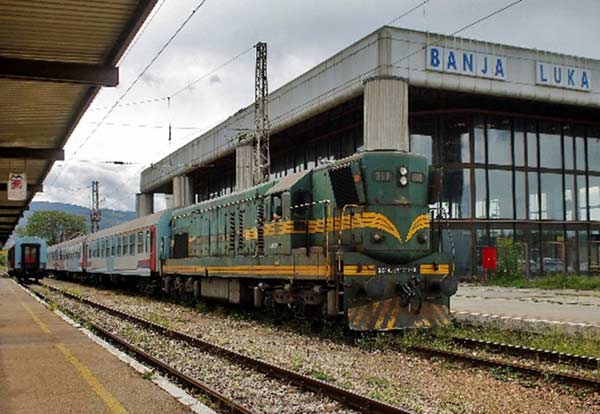
28 May 2024
IRG-Rail – PLENARY ASSEMBLY HELD IN FALUN, SWEDEN 14-15 MAY 2024
IRG-Rail’s Plenary Assembly met for its spring session in Falun, chaired by Mr Jonas Bjelfvenstam and Carl Von Utfall Danielsson from Transportstyrelsen, Sweden’s Regulatory Authority for Railway. Transportstyrelsen welcomed the representatives of 24 Regulatory Bodies on site and six connected remotely.

Source: IRG-Rail
During the meeting, the working groups presented their results in relation to the work program for the year. The focus was on IRG's input to the negotiations on the Capacity Regulation and the EU Commission's review of the SERA Directive. The direction for a new four-year strategy for IRG-Rail was also discussed and three new reports were adopted.
The Plenary adopted the following documents:
- “Network access challenges following the deployment of ERTMS”
This paper details the main results of the investigation initiated in 2023 by IRG -Rail to get a better understanding of the implication of ERTMS deployment for network access across Members States. The paper focuses especially on ERTMS deployment modalities, on its added value for the development of the Single European Area and on potential barriers to market entry. - ”Overview Paper on International Freight Services”
This paper gives an overview about international freight services from the charging perspective. The paper therewith looks at the level of charges in the different IRG-rail member countries as well as differences in the freight charging schemes. - ”Report on the outcomes of monitoring of rail freight corridors’ KPIs”.
This paper contains a brief written report on the outcomes of the activity of monitoring the latest available data concerning KPIs for Rail Freight Corridors.
IRG-Rail documents can be found on its web site (https://irg-rail.eu/irg).
The next IRG-Rail Plenary Assembly will be held in November 2024.
21 March 2024
Study Visit to the People’s Republic of China organized by CRRC Changchun Railway Vehicles Co., Ltd
CRRC China Railway Vehicles Co., Ltd. organized a study visit to the People's Republic of China from 7 to 13 March 2024 in the spirit of Chinese-Serbian friendship and successful cooperation in the implementation of a number of significant projects in the field of railways.
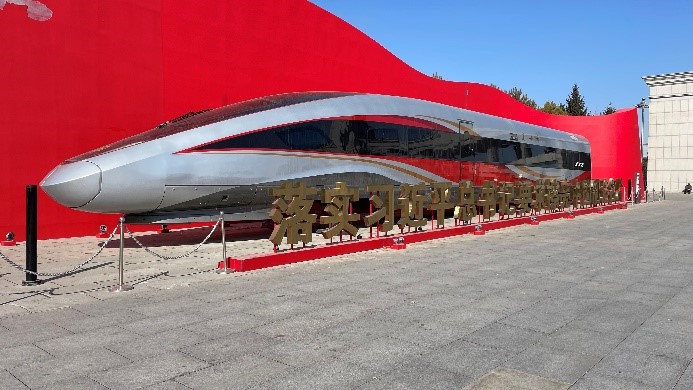
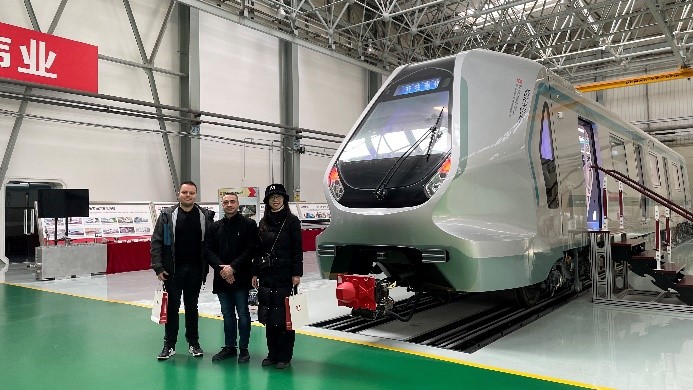
At the introductory meeting, representatives of the Directorate learned about the rich history of Chinese Railways. After that, CRRC Changchun Railway Vehicles Co., Ltd. presented its operation centre where all high-speed trains manufactured by CRRC Changchun Railway Vehicles Co., Ltd. are tracked in real time in the territory of China. They track their positions, status in terms of whether they are operational or not, in depot, in repair service, whether there are any errors in the system or malfunctions. The software itself collects a huge amount of data that the company further studies by analysing errors and malfunctions, which they then use to improve service operations and future products.
After a tour of the operation centre, the delegates visited the premises of the Research and Development Centre, which performs test of all components, as well as static and dynamic loading of parts, magnetic and audio testing of cabin parts, windows and entire assemblies.
The representatives of the Directorate for Railways could also see the high-speed train Soko, purchased by the Republic of Serbia, whose production at that moment was in the final phase.
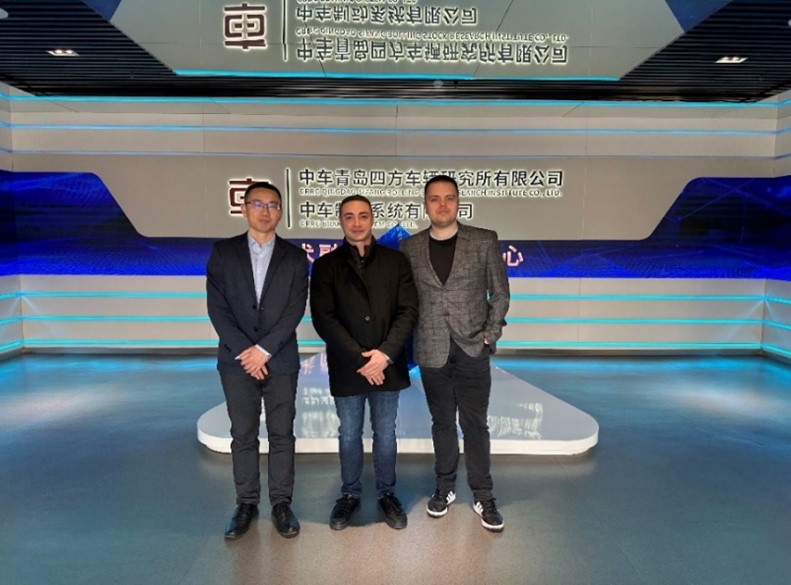
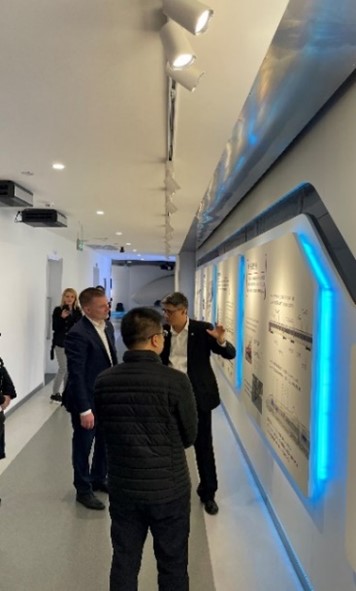
On Sunday 11 March, the visit continued with a tour of the facilities of CRRC China Railway Vehicles Co., Ltd. intended for the development and production of various components, primarily electronic components for trains (https://www.crrcgc.cc/sfgfen). The representatives of the Directorate listened to a brief history of the company followed by a detailed tour of the production facilities.
The development centre, where new technologies that have not been seen yet in this industry are being developed, is particularly impressive.
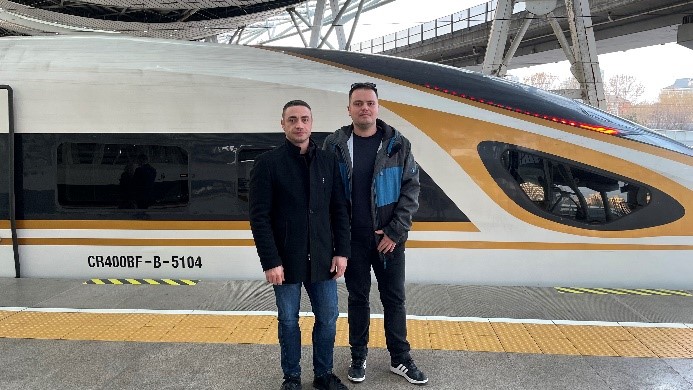
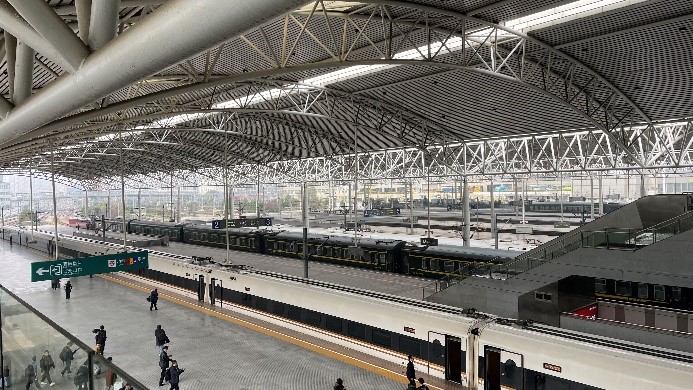
After visiting the production facilities of CRRC China Railway Vehicles Co., Ltd. the representatives took a ride on the Fushy train from Shanghai to Beijing, which reaches a speed of 350 km/h and travels a distance of about 1,200 km in about 4.5 hours.
Traveling on this train is extremely impressive, not only because of the speed that is achieved, but also because of the very pleasant feeling in the cabin which is ensured by a very low level of noise and vibrations transmitted from the environment into the interior of the cabin.
5 March 2024.
TRANSPORT COMMUNITY – 19th MEETING OF THE TECNICAL COMMITTEE ON RAILWAY
The Transport Community’s Technical Committee on Railway held its 19th meeting in Vienna on 27-28 February 2024. In the premises of the infrastructure manager ÖBB Infrastruktur AG, the participants of this meeting had the opportunity to learn about the history of the main railway station in Vienna (Wien Hauptbahnhof) and its construction project, which lasted from 2007 to 2012. Also, the participants were introduced by colleagues from ÖBB Infrastruktur AG to the structure and organization of the railway market in Austria, transport indicators, strategic goals for the development of railway infrastructure in Austria, financial aspects of the construction and maintenance of the railway network, the most important projects being implemented, etc. In addition, before the meeting of the Technical Committee, the participants had the opportunity to visit the railway station itself, organized by OBB Infrastruktur AG, and familiarize themselves with the construction and operational structure of the railway station, its functioning, the modern systems that were used during its construction, and its connectivity with other public transport systems in Vienna. The station was built in the place where there were previously two railway stations facing each other that were connected into a single station, which achieved a much higher capacity, i.e. number of passengers using the station.
The agenda of the Technical Committee included a great number of topics related to the development and future of rail operations in the region of the Western Balkans. Some of the key presentations were held by experts from the Austrian ministry in charge of transport, as well as industry representatives, covering various topics, from the experience of institutions in implementing EU legislation in the field of railways, to high-speed line projects and plans for the expansion of the TEN-T railway network.

Source: Transport Community
The meeting also discussed upcoming projects and investments, structure and capacities of the railway services market, interoperability implications, setting the stage for enhanced connectivity across the ТЕN-Т network, etc.
One of the most important topics of this meeting was the drafting of the Transport Community’s new Action Plan for Rail, where the participants had the opportunity to discuss in more detail the activities envisaged by this document and make recommendations for its improvement. The Transport Community’s Action Plan for Rail covers a period of three years and refers to the implementation of reform activities based on the Transport Community Treaty, namely for areas related to the opening of the railway market, passenger rights, safety, interoperability, modernization and management of infrastructure.
In addition, the meeting discussed proposals for EU legal acts in the field of rail transport and the activities of the European Union Railway Agency planned for 2024. All the mentioned activities showed a serious commitment of the relevant actors to advancing railway transport in the region.
During the meeting, the participants from the Western Balkans underlined the importance of collaboration in addressing technical challenges and fostering sustainable growth.
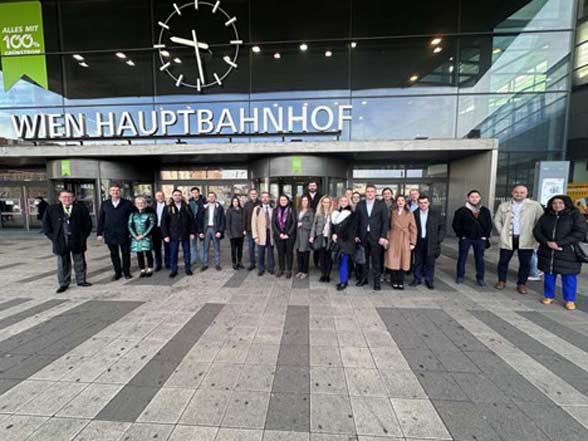
Source: Transport Community
The Technical Committee on Railways is a platform for collaboration and decision-making on rail-related matters within the Transport Community. It aims to enhance rail transportation in South East Europe and the Western Balkans by promoting cooperation among regional partners and stakeholders.
26. januar 2024.
IRG-RAIL: MARKET MONITORING WORKING GROUP MEETING
With the support of the Chamber of Commerce and Industry of Serbia, the Directorate for Railways hosted the meeting of the Market Monitoring Working Group of the Group of Independent Regulators of the Railway Market - IRG-rail. The meeting held on 23 January 2024 in the premises of the Chamber of Commerce and Industry of Serbia in Belgrade gathered around 20 representatives of railway regulatory bodies from 13 European countries, as well as a certain number of representatives who followed the meeting remotely.

Members of the working group met in order to prepare the final version of the IRG-Rail’s 12th Market Monitoring Report. This report covers calendar year 2022 and includes an in-depth analysis of usage of the European railway network and its potential determinants, such as demographic and geographic factors, the structure and level of track access charges, the state of the infrastructure, competition, etc. Adoption and publication of the report is planned for the end of March 2024.
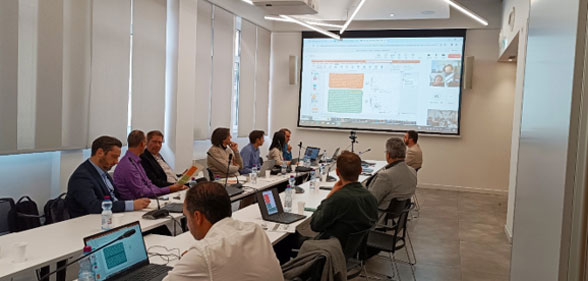
The IRG-Rail Market Monitoring Working Group was set up as a platform for cooperation and to exchange best practice of regulatory bodies in terms of collection and analysis of data on the railway market. Based on the results of yearly collection of data, this Working Group produces and annual Market Monitoring Report that provides an overview of market developments and economic conditions in the railway sector with respect to the IRG-Rail member countries, as well as a comparison of developments and the competitiveness of the European railway market over time.
31 countries participated in the collection of data for this 12th Market Monitoring Report.
______________________
The Directorate for Railways has been a member of IRG-Rail since 2016. IRG-Rail (Independent Regulators' Group - Rail) was established by a Memorandum of Understanding signed on 9 June 2011 in The Hague, which sets out a framework for an informal cooperation network of independent railway regulatory bodies in order to exchange experiences and opinions on key issues related to regulation and development of competition on the European railway market.
27 December 2023
RESCOR MEETING 2023
The RESCOR network gathered from 14 to 15 December 2023 in Lyon, France, at a meeting organized by the French Technical Service in Charge of Safety for Ropeways and Guided Transports - STRMTG, which is responsible to the French Ministry of Ecological Transition and Territorial Cohesion. STRMTG is in charge of ropeways in accordance with EU regulations and has a significant role in approving the commissioning of urban guided transport systems (such as metro, tramways, etc.).

RESCOR is European network of services responsible for the oversight and regulation of the safety of urban guided transport that meets regularly once a year. RESCOR 2023 gathered the representatives from Denmark, France, Germany, Switzerland, Spain, Ireland and Serbia (Directorate for Railways).
On the first day of the meeting, the participants visited the manager of the metro system in Lyon, KEOLIS GROUP, one of the world leaders in the management of metro systems that apart from France, performs these tasks in 13 countries.
The representatives were also invited to take a ride on metro lines B and D (without a driver),
A (with driver) and C (with toothed rail) in order to see the differences between the different systems.
After the ride, they visited the Poudrette workshops for the maintenance of metro vehicles in Lyon. The vehicles are maintained according to the maintenance program by KEOLIS GROUP, the manager of the metro system.
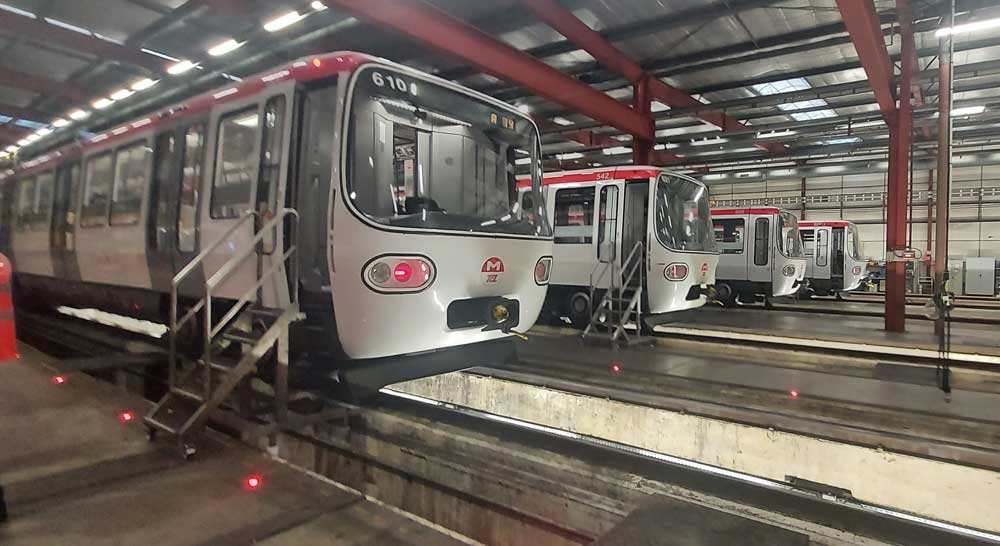
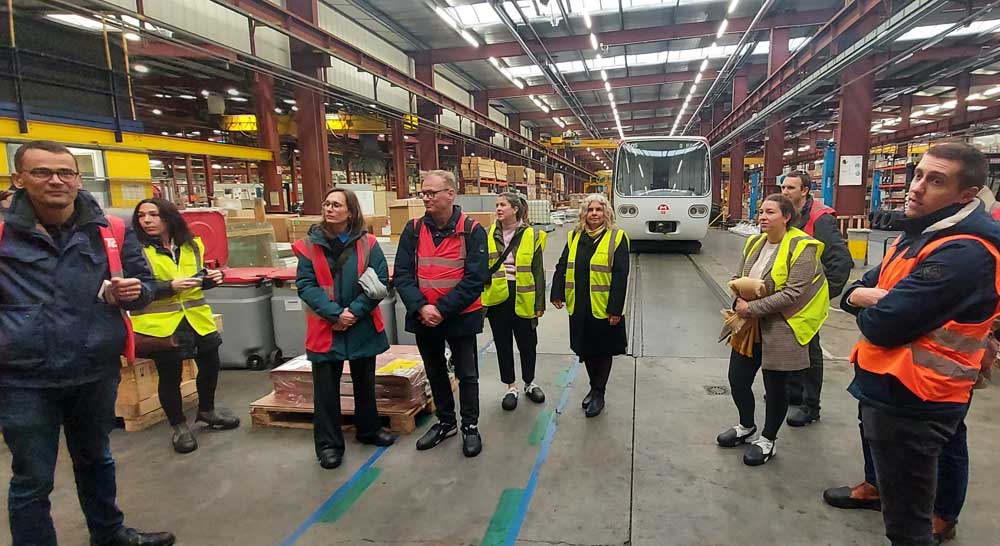
On the second day of the meeting, the presentations covered different areas, such as regulations, construction, maintenance, exploitation and supervision of guided transport systems.
The organizer of the meeting, STRMTG, presented, among other things, the procedure for putting into operation new lines of guided systems and new vehicles that operate on them in France and the method of recording emergency events in 2022 for metros and trams. They also presented new French national regulations related to the safety of railway transport and guided systems. A round table provided opportunity for all the participants to inform about new adopted or planned regulations in this area.
The Directorate for Railways is the authority in charge of issuing certificates and authorisations required for the commissioning of new metro lines, the construction of which is planned in Belgrade, as well as the adoption of by-laws based on the Law on Metro and Urban Railways ("Official Gazette of RS", No 52/2021). Therefore, bearing in mind that there is no legal framework in the area of the metro at the EU level, the experiences of national authorities from EU countries dealing with this subject matter are extremely useful.
8 December 2023
IRG-Rail – PLENARY ASSEMBLY HELD IN BERLIN FROM 28 TO 29 NOVEMBER 2023
IRG-Rail’s Plenary Assembly met for its autumn session in Berlin, chaired by Dr. Annegret Groebel and Prof. Dr. Karsten Otte from Bundesnetzagentur, Germany’s Regulatory Authority for Electricity, Gas, Telecommunications, Post and Railway. Bundesnetzagentur welcomed the representatives of 23 Regulatory Bodies on site and six connected remotely.
 Source: IRG-Rail
Source: IRG-Rail
In addition to reports from the Working Groups on their deliveries for 2023 and the next planned activities for the work program in 2024, the IRG-Rail members addressed current developments in the railway sector and within IRG-Rail.
The Plenary adopted the following documents:
An “Update of the paper on the economic approach of charging principles of Article 31 (7) and Article 31 (8) of the Directive 2012/34/EU”. It contains new information, e.g. on cost categories, the ownership of assets, and on the level of charges exceeding eligible cost plus reasonable profit.
A report on the “Railway market regulation in freight terminals“. It gives an overview on national approaches and considerations on which parts and services within a freight terminal are rail-related.
The Memorandum of Understanding Art. 9 lit. 1 was amended to give two Regulatory Bodies the opportunity to co-chair IRG-Rail.

Ahead of the Plenary Assembly a paper on “General Remarks on the EC proposal for a Regulation on the use of railway infrastructure capacity in the Single European railway area” was published, which gives first considerations to ensure non-discriminatory access to rail infrastructure and service facilities in Europe and the efficient use of the rail network. As well, IRG-Rail published “Preliminary opinion on the European Commission’s Track Access guidelines” to share their views and experiences on this matter to support the EC's work on the guidelines during their development.
You find all four reports as well as the amended Memorandum of Understanding on this website (https://www.irg-rail.eu/ ).
The Plenary elected Ms. Cani Fernández from the Spanish Regulatory Body Comisión Nacional de los Mercados y la Competencia for Chair of IRG-Rail in 2025 following Jonas Bjelfvenstam and Carl von Utfall Danielsson from the Swedish Regulatory Body Transportstyrelsen, who will chair IRG-Rail in 2024.
The next IRG-Rail Plenary Assembly will be held in May 2024.
30 November 2023
OTIF – Anniversary of the CIM and CIV Uniform Rules
The 5th session of the ad hoc Committee on Legal Affairs and International Cooperation of OTIF (Intergovernmental Organisation for International Carriage by Rail) opened on 7 November 2023 in Bern with a special event related to the 130th anniversary of CIM and 95th anniversary of CIV Uniform rules.
 Source: OTIF
Source: OTIF
The first International Convention on the Carriage of Goods by Rail (CIM) was adopted on 14 October 1890 and entered into force on 1 January 1893. The first International Convention on the Carriage of Passengers and Luggage by Rail (CIV) was adopted on 23 October 1924 and entered into force on 1 October 1928. This year, 2023, therefore marks 130 years since the CIM Uniform Rules entered into force and 95 years for the CIV Uniform Rules. On this occasion, several round tables offered the opportunity to the users of the CIV and CIM Uniform Rules and other experts from these fields to share their experiences and thoughts directly with OTIF.
 Source: OTIF
Source: OTIF
The round tables discussed whether these regulations, considering their longevity, are adapted to the current situation and whether there is an urgent need for their revision. In addition, some of the important topics of this meeting were the relations between customs procedures and contracts of carriage, as well as the relations between international law and national regulations of OTIF member states. The challenges of digitization were also on the agenda, especially in the international transportation of passengers by rail. The general conclusion of these talks was that there is currently no urgent need to change these regulations, and that, if they are changed in the future, it should be done very carefully and with a focus on the liberalization of rail transport and its competitiveness.
OTIF is an intergovernmental organization dedicated to international rail transport and the development of a single railway law in order to connect the countries of Europe, Asia and Africa. It has been active since 1893 and is the oldest international organization in this sector. It currently counts 50 member states, including Serbia, and one associate member.
29 November 2023
International Conference on Cybersecurity in Railways
Third ERA-ENISA Conference on Cybersecurity in Railways that took place on 8 - 9 November 2023 in Athens was the continuation of the close collaboration between the European Union Agency for Railways (ERA) and the European Union Agency for Cybersecurity (ENISA) on cybersecurity in the railway domain.

 Source: ERA
Source: ERA
The aim of this conference was to acquaint the participants with cyber threats in the railway sector, as well as with the latest developments related to the prevention of such attacks and possible corrective measures. The topics also covered development of the cybersecurity policy, raising awareness of cyber threats within the railway community, managing risks arising from cyber attacks, as well as risk identification methods. In this context, strong emphasis was given to the importance of protecting the ETCS and ERTMS systems from cyber attacks.

The conference also provided excellent networking opportunities aiming at building a railway cybersecurity community.
21 November 2023
USE OF ALTERNATIVE FUELS AND BATTERY ELECTRIC TRAINS
European Union Agency for Railways organized, from 10 to 12 October 2023, an IPA study visit on the topic of using alternative fuels (hydrogen trains) and battery-electric trains. The study visit was held in the Federal Republic of Germany, in the cities of Bremen, Braunschweig and Dusseldorf. This study visit brought together a large number of representatives of National Safety Authorities (NSAs), including the representatives of the Directorate for Railways.

The participants of the study visit learnt about the basics of using hydrogen as a fuel for railway passenger vehicles intended for regional traffic, as well as the possibility of using batteries for electric train operation. One of the specifics of this study visit was that the delegates travelled by rail to all destinations for the entire duration of the visit, which left a special impression on all of them.
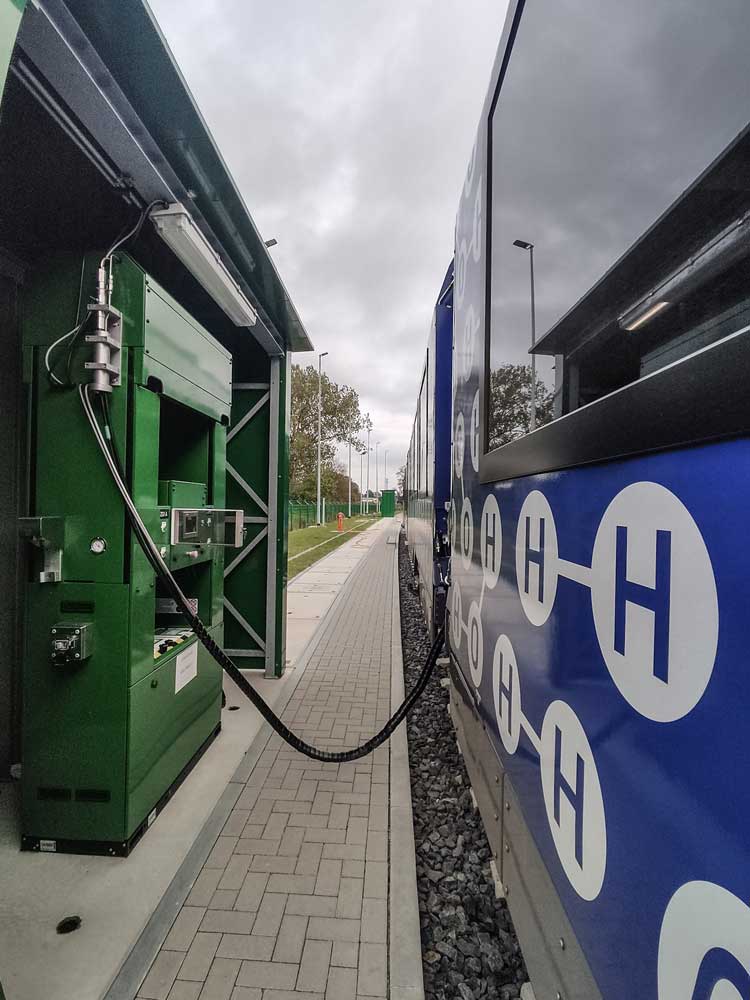
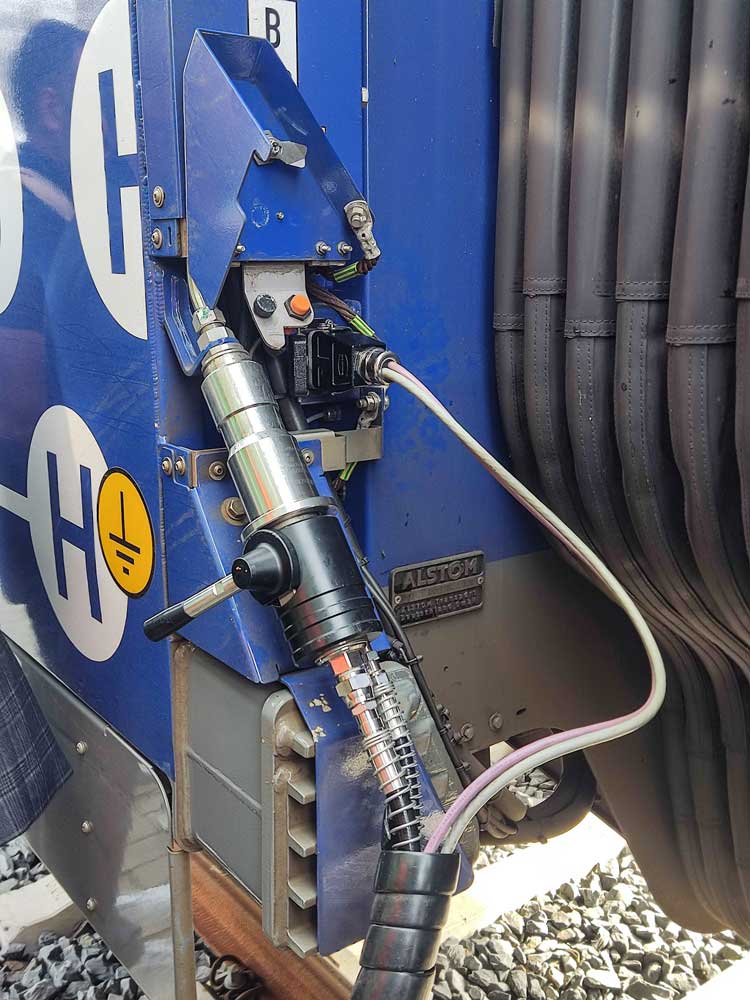
On the first day, 10 October 2023, the study visit presented the hydrogen trains of the company "Eisenbahnen und Verkehrsbetriebe Elbe-Weser (EVB)", in Bremerverde. Hydrogen, as the green fuel of the future, is extremely popular in the expansion of regional rail traffic in the Federal Republic of Germany. The participants had the opportunity to take a ride on a regional hydrogen-powered train, to learn about the management system of these trains, the system of transport and storage of hydrogen, as well as refuelling of hydrogen trains.
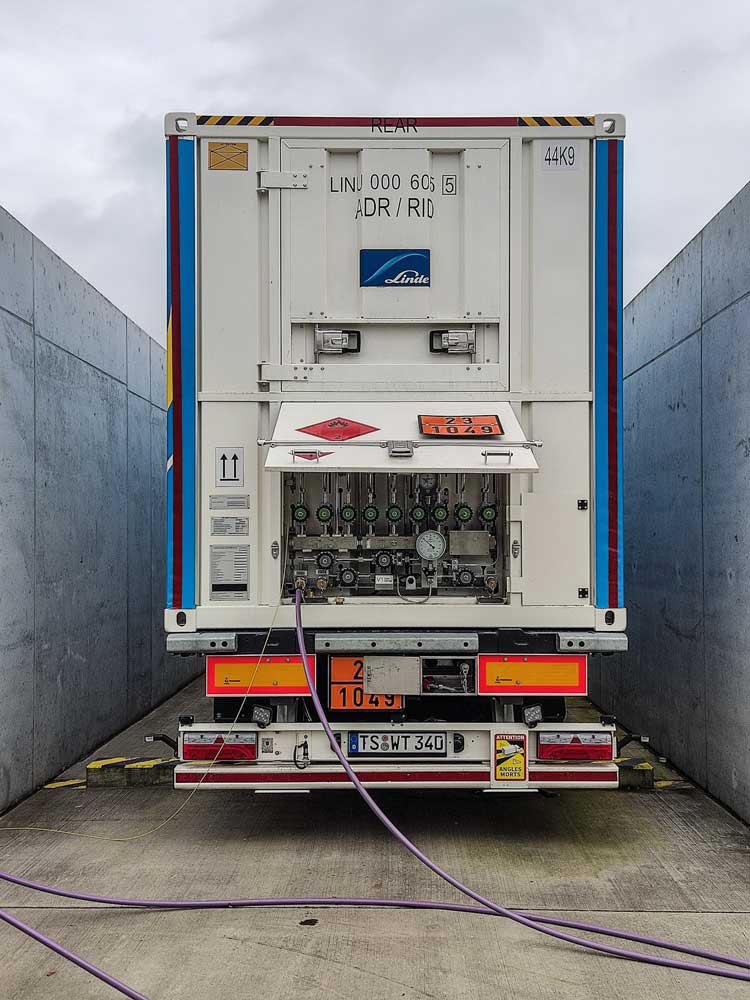
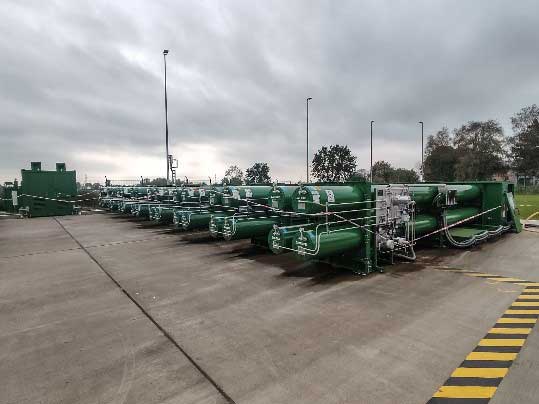
Representatives of the EVB company provided the participants with a detailed insight into the hydrogen train refuelling station, where they pointed out that the station can store a total of 4.95 tons of hydrogen, whereby hydrogen can be filled into 12 trains per day, via 2 refuelling machines. It is possible to refuel hydrogen in two train sets at the same time. One full tank of hydrogen allows the train to cover a distance of between 700 and 1000 km. The speed of refuelling of hydrogen trains depends on the air temperature, hydrogen temperature and the amount of remaining hydrogen in the tanks. Therefore, the refuelling time can range between 10 and 20 minutes when the hydrogen is cold and when the outside air temperature is pleasant or lower, up to 45 minutes if the hydrogen is warm and the water temperature is elevated.
In the Federal Republic of Germany, there are a total of two hydrogen-refuelling stations for trains - one in Bremervorde and the other in the vicinity of Frankfurt. Hydrogen train refuelling stations are deployed only in those regions of the country where hydrogen trains are used. Hydrogen is delivered to the refuelling stations by trucks. The transport via a pipeline system is being considered for the future, whereby the entire process of production - transport - refuelling - use would be performed as a completely "green" process, i.e. without CO2 emissions, which is precisely the goal of the project to use hydrogen as an alternative fuel for regional rail traffic.
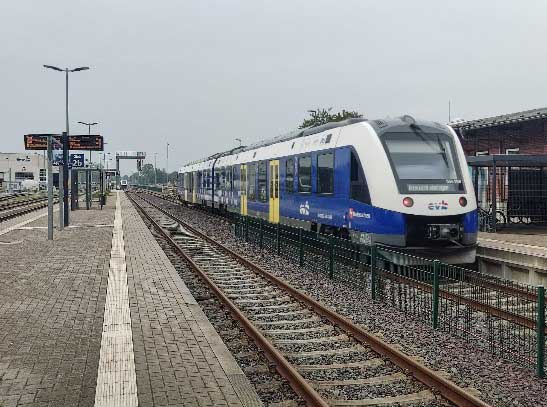
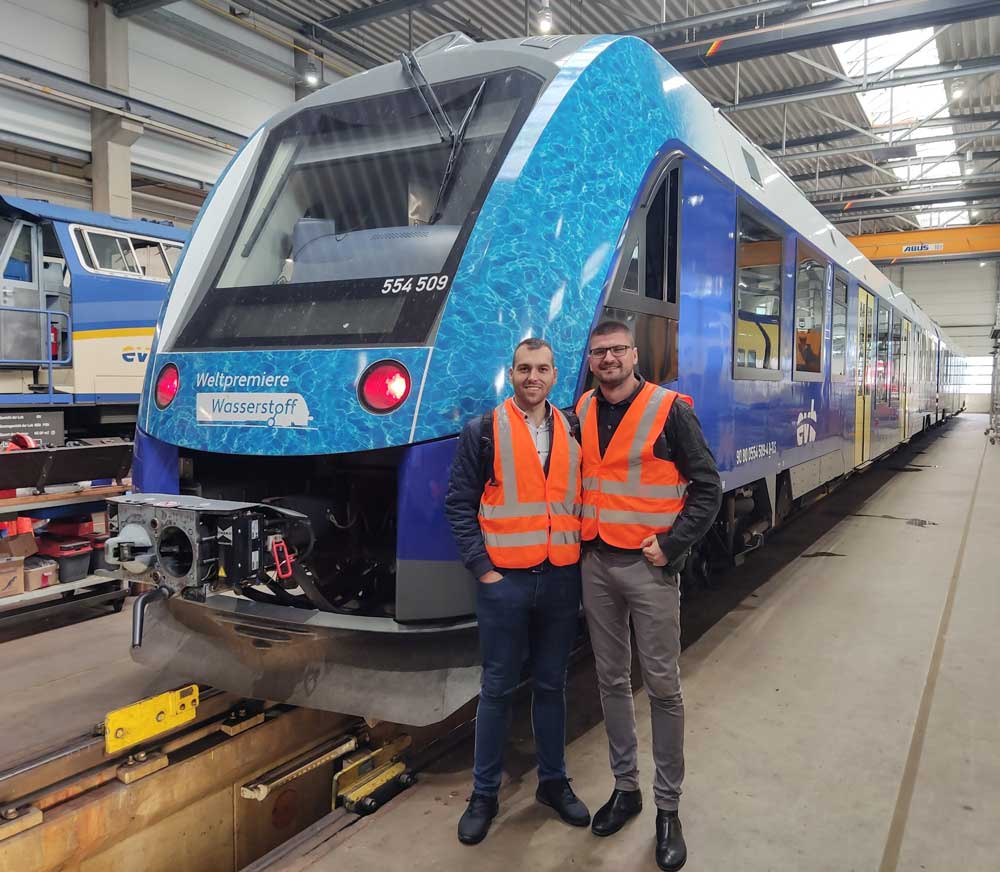
After the hydrogen refuelling station, the participants had the opportunity to visit the first depot in the Federal Republic of Germany for the maintenance of hydrogen trains, as well as the maintenance depots for all other vehicles of the EVB company. The maintenance of passenger trains for regional traffic is not significantly different from the maintenance of regional diesel trains. The biggest danger that company representatives point out is the danger of flammability and explosion, given the sensitivity of hydrogen. Therefore, the maintenance depot for hydrogen trains takes special care of safety measures.
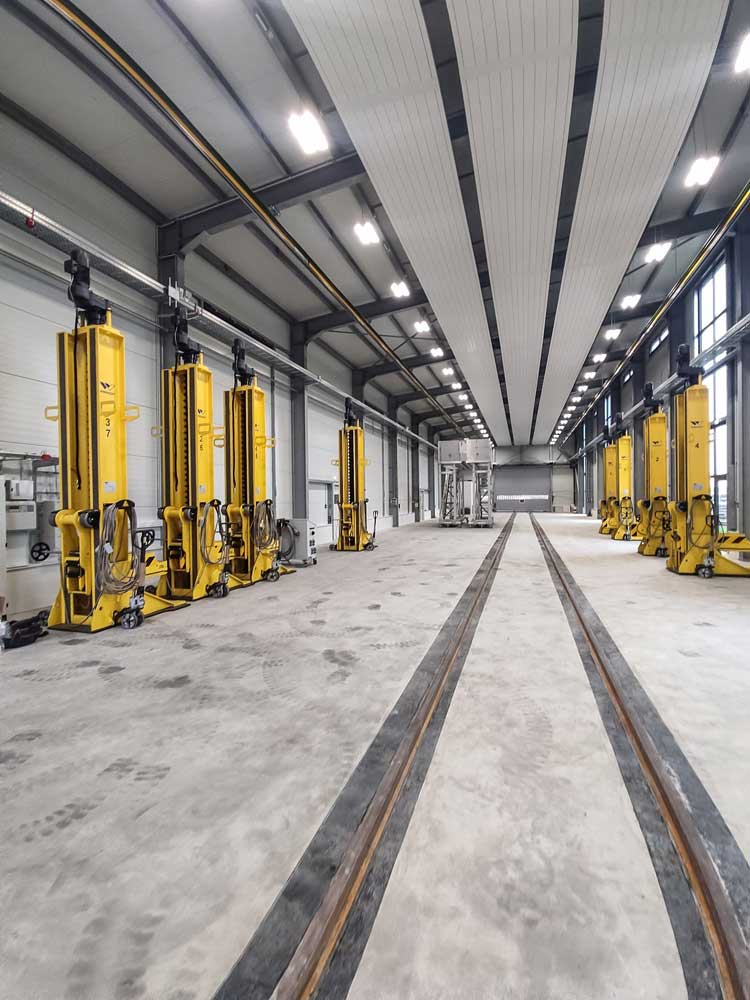
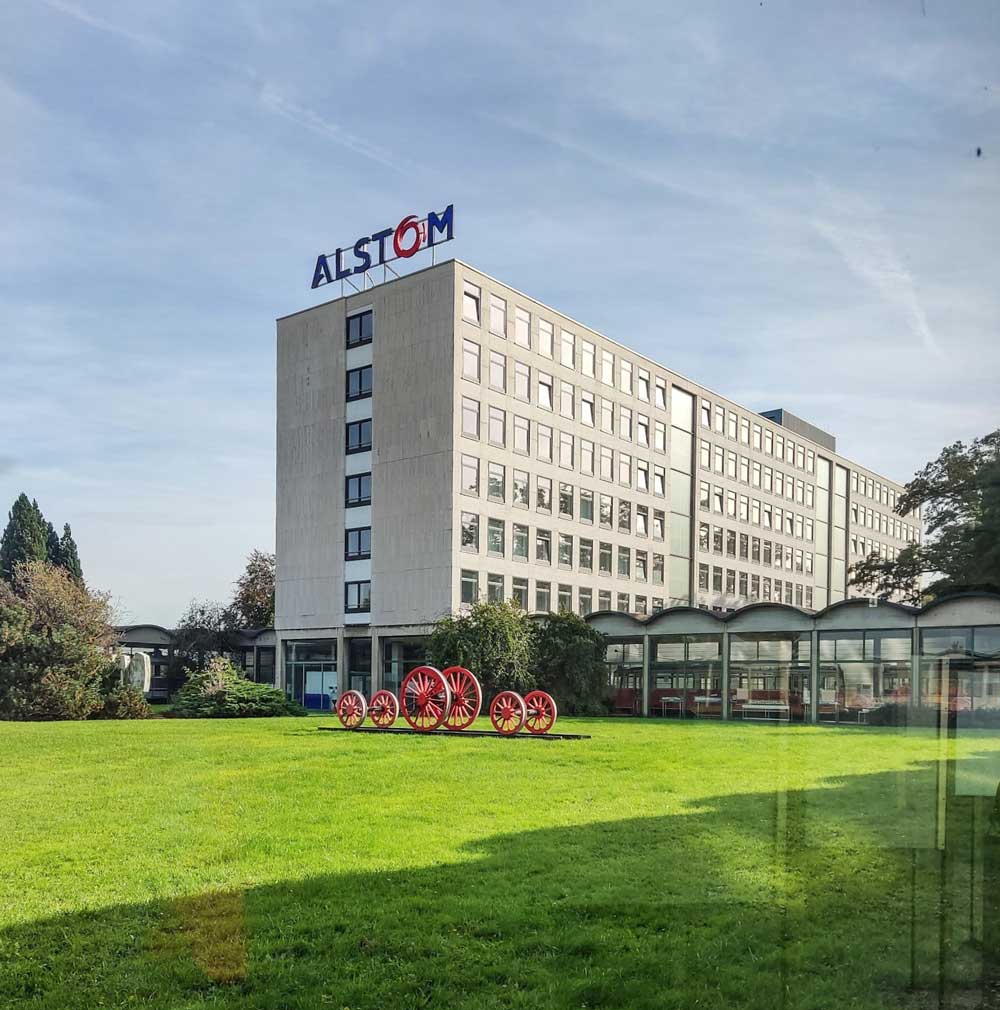
On the second day of the study visit, on 11 October 2023, the participants went to Braunschweig, to the factory of the "Alstom" company, one of the leading companies for the production of railway vehicles in the world. As part of this visit, the participants had the opportunity to hear about the production of hydrogen-powered trains, intended for regional railway traffic, but also about the production of battery-powered trains. The company "Alstom" has over 70,000 employees and it has manufactured over 150,000 railway vehicles for commercial use. This company manufactures alternative fuel railway vehicles - hydrogen and battery vehicles "Coradia Lint" and "Coradia Ilint".
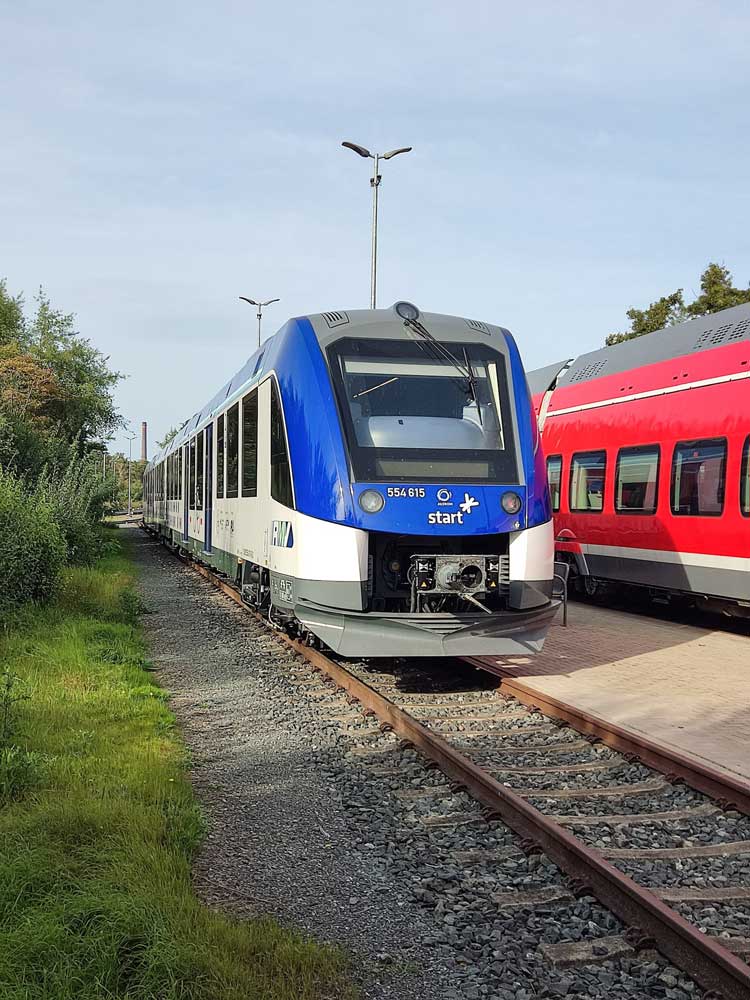
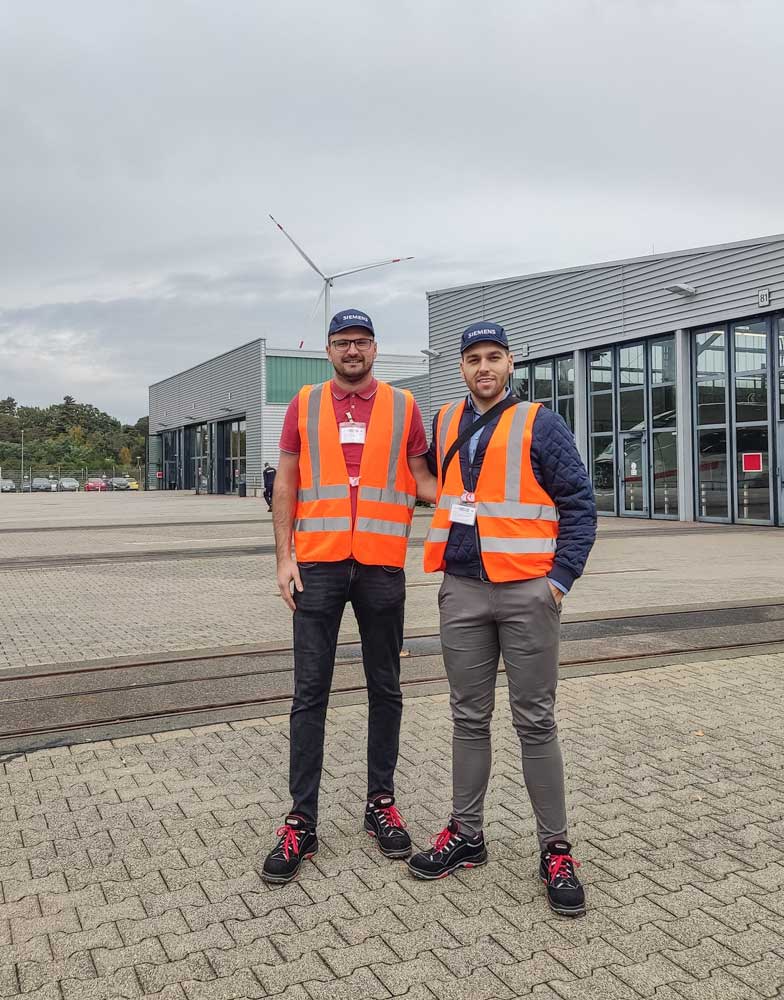
On the last day of the study visit, 12 October 2023, the participants visited the training and verification centre of the company "Siemens Mobility" in the area of the Wegberg. "Siemens Mobility" is one of the largest companies for the production of railway vehicles in the world, and in addition to manufacture, the company also deals with various vehicle tests. As part of this training and verification centre, participants had the opportunity to see large and unique complexes for testing, verification and certification of railway vehicles. The complex includes 6 km of modern tracks for testing vehicles for speeds of up to 160 km/h, 2.5 km of tracks for testing vehicles for speeds of up to 100 km/h, 1.4 km of tracks for testing vehicles for speeds of up to 80 km/h h, as well as 550 m of tracks in a curve of radius R=50.0 m for testing the behaviour of vehicles in curves. This centre carries out tests and verifications of both railway vehicles and trams and the tracks in the complex have a standard width of 1435 mm and 1000 mm. The testing and verification centre is available to everyone under equal conditions so this is where many leading companies also test their vehicles. The training and verification centre issues safety certificates, management certificates, laboratory accreditations and bonding certificate.
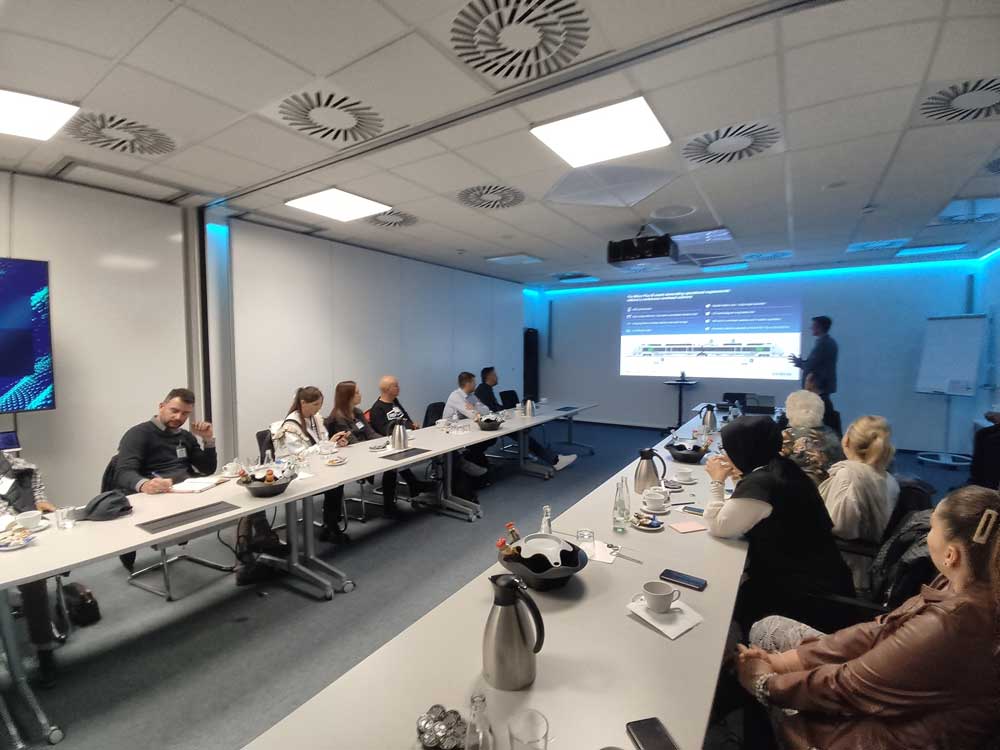
"Siemens Mobility" also manufactures railway vehicles powered by green energy – hydrogen of the "Mireo Plus" type for the needs of regional railway traffic, as well as battery-powered electric trains. The representatives of the company point out that the price of hydrogen-powered trains is 10-20% higher than the price of battery-powered trains, but that hydrogen-powered trains can cover a distance of over 1000 km with a full tank. For battery-powered trains, battery life depends on proper handling and battery charging, and averages 10 to 15 years. In addition, they pointed out that battery-powered electric trains are primarily intended for bridging a non-electrified section between two electrified sections. For that reason, primary power supply of electric trains with batteries is from the overhead contact line. In battery mode, the regional passenger train can cover a distance of 80 to 120 km.
The participants of this IPA study visit had the opportunity to learn about the importance of using alternative fuels for railway vehicles - hydrogen and batteries, in order to reduce CO2 emissions and protect the environment, as well as about the basic technological processes of manufacture, maintenance and management of the maintenance of such railway vehicles. In addition, the participants of the study visit gained an insight into the testing and verification of railway vehicles, the types of approbations and certificates issued in the training centres, which rounded off this comprehensive and educational visit.
9 October 2023
Transport Community’s Technical Committee on Railways Gathers for its 17th Meeting
The Technical Committee on Railways of the Transport Community successfully concluded its 17th meeting held in Zagreb, Croatia, on 5 to 6 October 2023. The meeting brought together a diverse group of representatives from South East European Parties, Georgia, the Republic of Moldova, Ukraine, European Commission’s Directorate-General for Mobility and Transport, European Union Agency for Railways, and private sector stakeholders, marking a milestone in shaping the future of rail transportation in the region.

The meeting focused on advancing key initiatives within the rail sector by discussing the Progress Report on Rail Action Plan and TEN-T Rail Network Extension.
In his opening remarks, Transport Community Director, Mr. Matej Zakonjšek, reflected on the importance and praised the work of the Technical Committee by pointing out that active engagement of all stakeholders underscores our collective commitment to advancing rail transportation in the region.
The participants engaged in a detailed discussion and presentation of the Final Draft of the Progress Report regarding the implementation of the Rail Action Plan. This report, crafted in collaboration with all regional partners, is set to be adopted by the Regional Steering Committee and Ministerial Council in upcoming meetings scheduled for October and November this year.
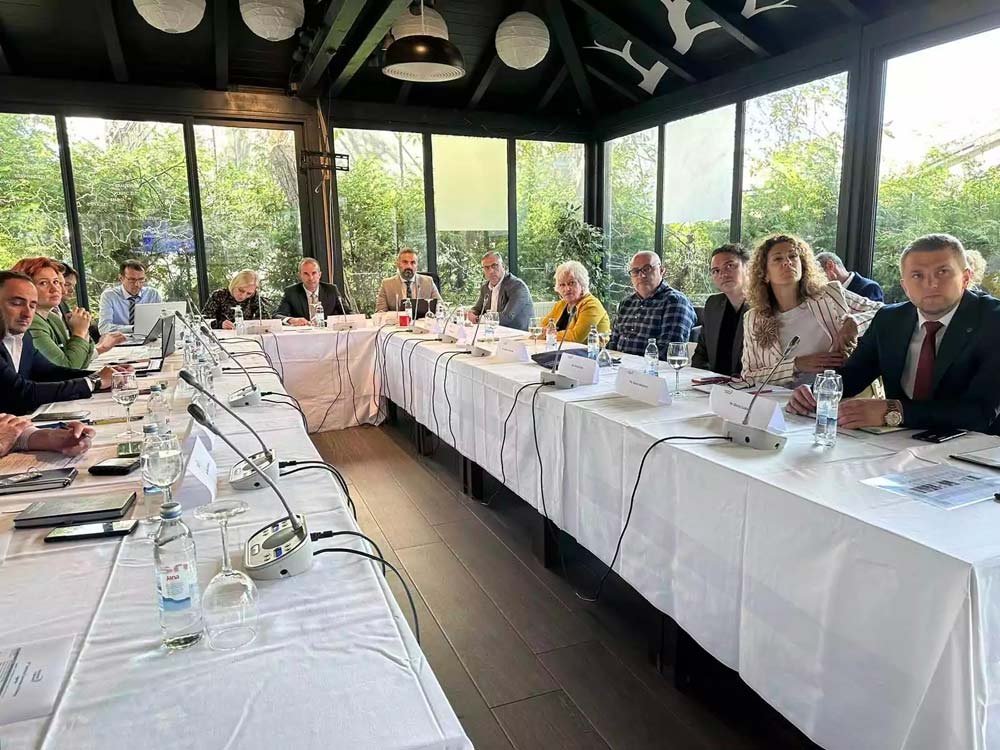
The Technical Committee also deliberated the TEN-T report addressing the extension of the TEN-T Rail Network into the Western Balkans. The report assessed the state of the rail network in the Western Balkans and its alignment with TEN-T requirements.
Throughout the meeting, attendees received updates on legislative changes related to the TEN-T Network, ongoing infrastructure projects, and the presentation of the final report on the study assessing the railway market in the region, which had been completed in August 2023.
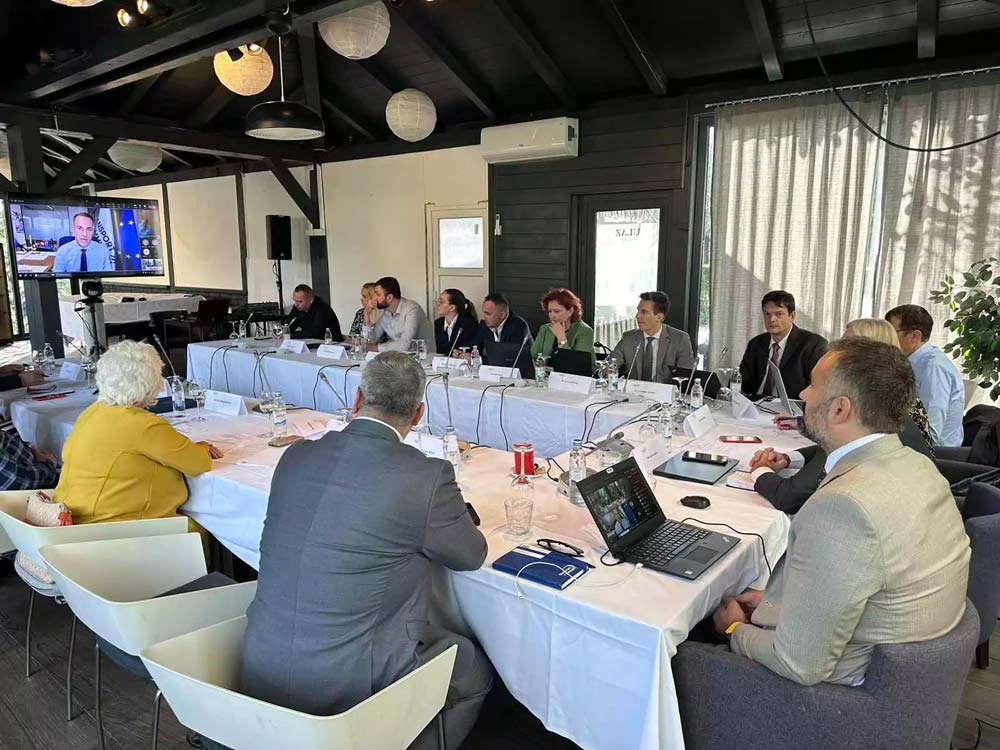
One of the meeting’s highlights was a visit to the Zagreb main railway station, organised in partnership with the passenger railway undertaking “HZ Putnički.” Attendees had the opportunity to witness a presentation and a demonstration of the new EMU train, which has been operational since July this year.
The Technical Committee on Railways is a platform for collaboration and decision-making on rail-related matters within the Transport Community. It aims to enhance rail transportation in South East Europe and the Western Balkans by promoting cooperation among regional partners and stakeholders.
22 August 2023
European Rail Safety Days 2023
Representatives of the Directorate for Railways participated in the European Rail Safety Days 2023 conference, held from 20 to 22 September 2023 in Tallinn, which was organized by the EU Agency for Railways (ERA).

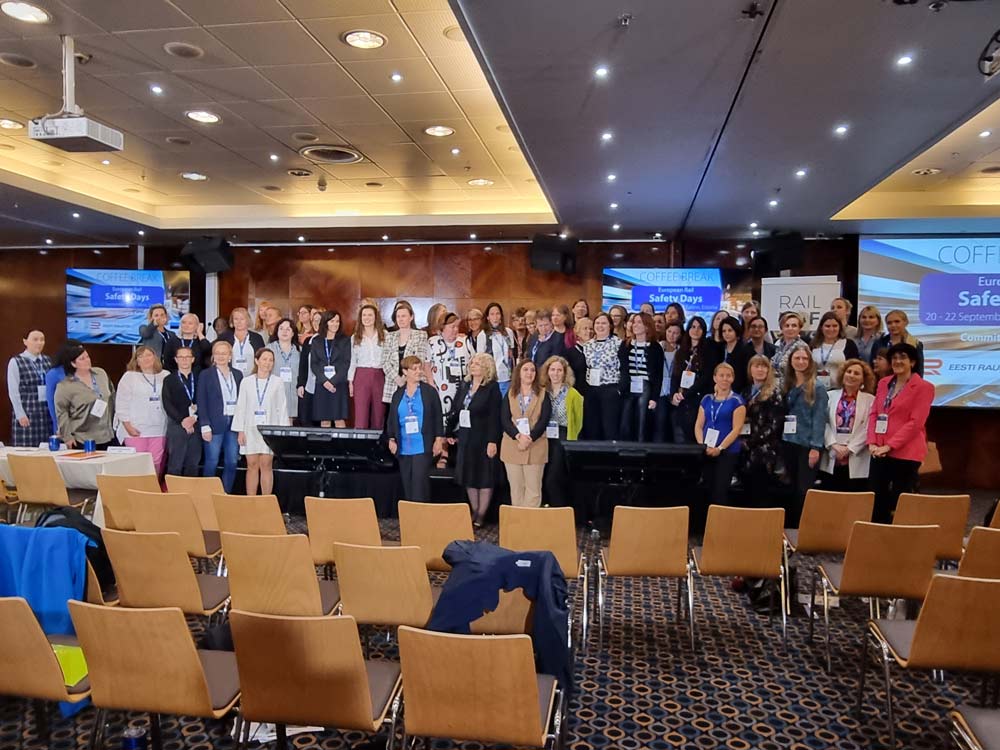
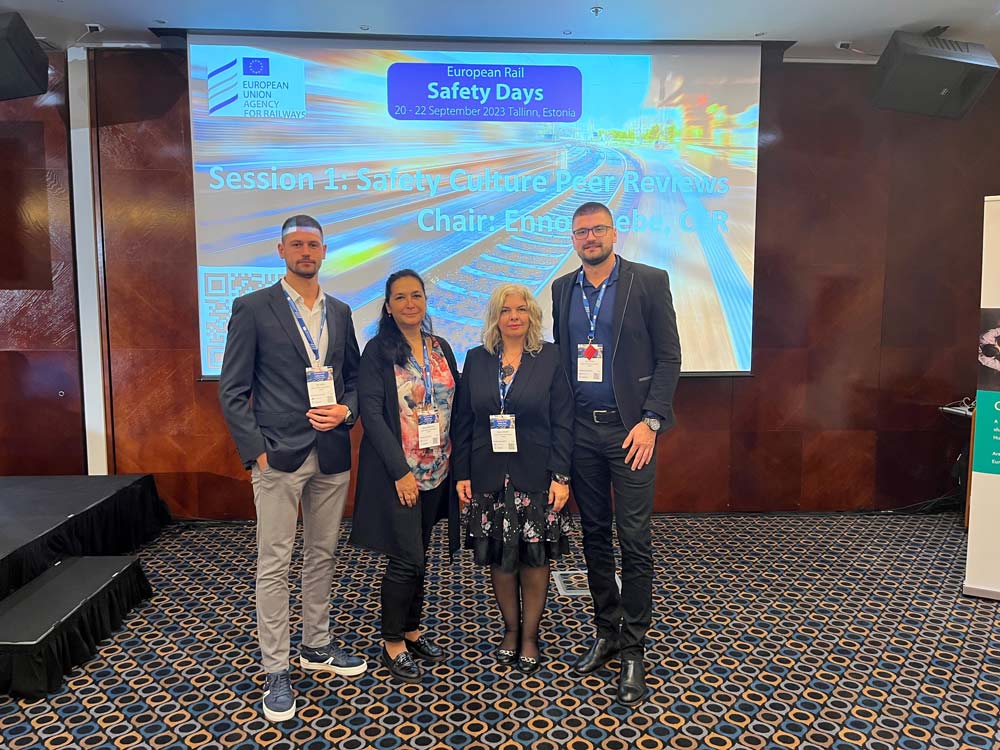
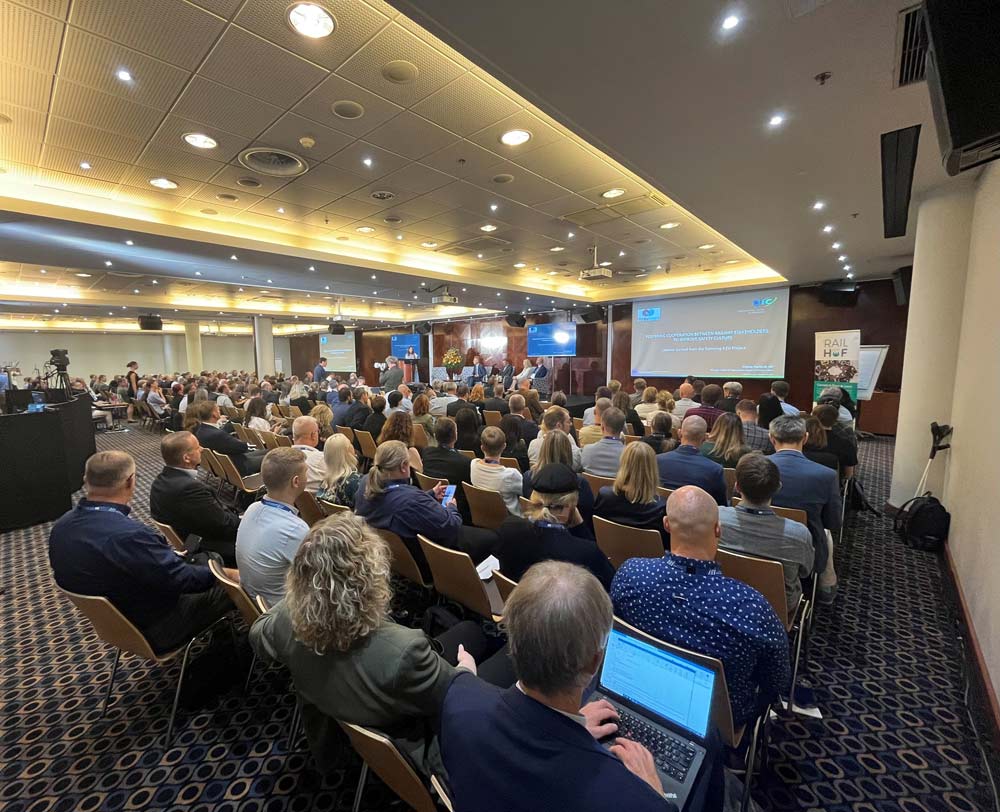
The opening speech of the conference was delivered by the executive director of ERA, Mr. Josef Doppelbauer, followed by a brief presentation of the Estonian railway system given by Mr. Sander Salmu, a representative of the Estonian Ministry of Ecology.
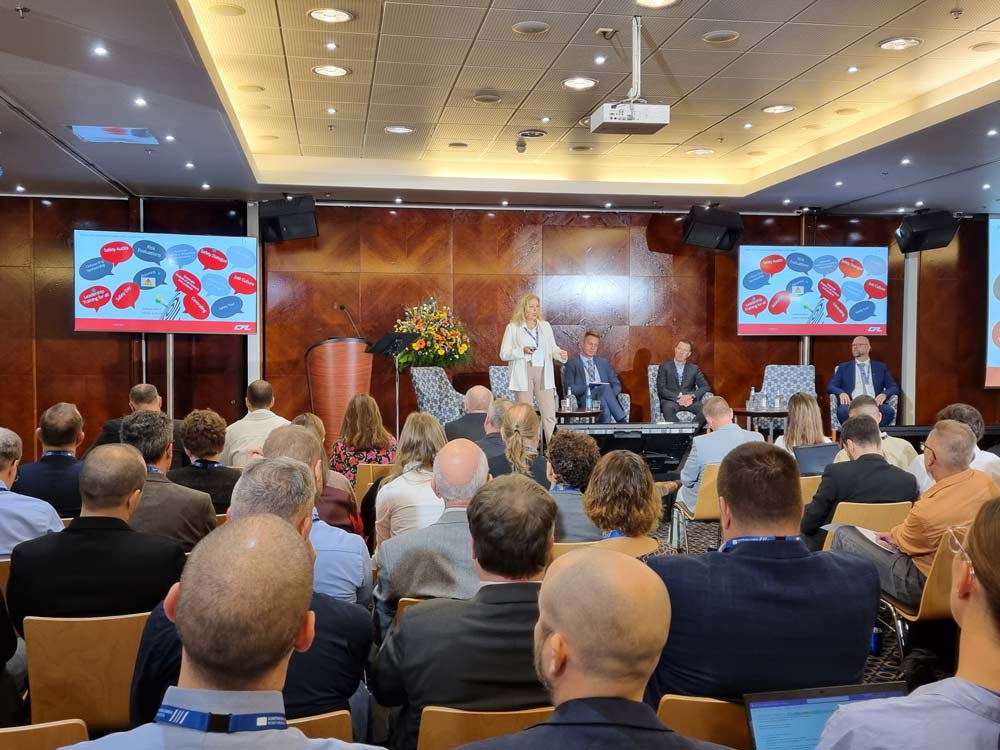
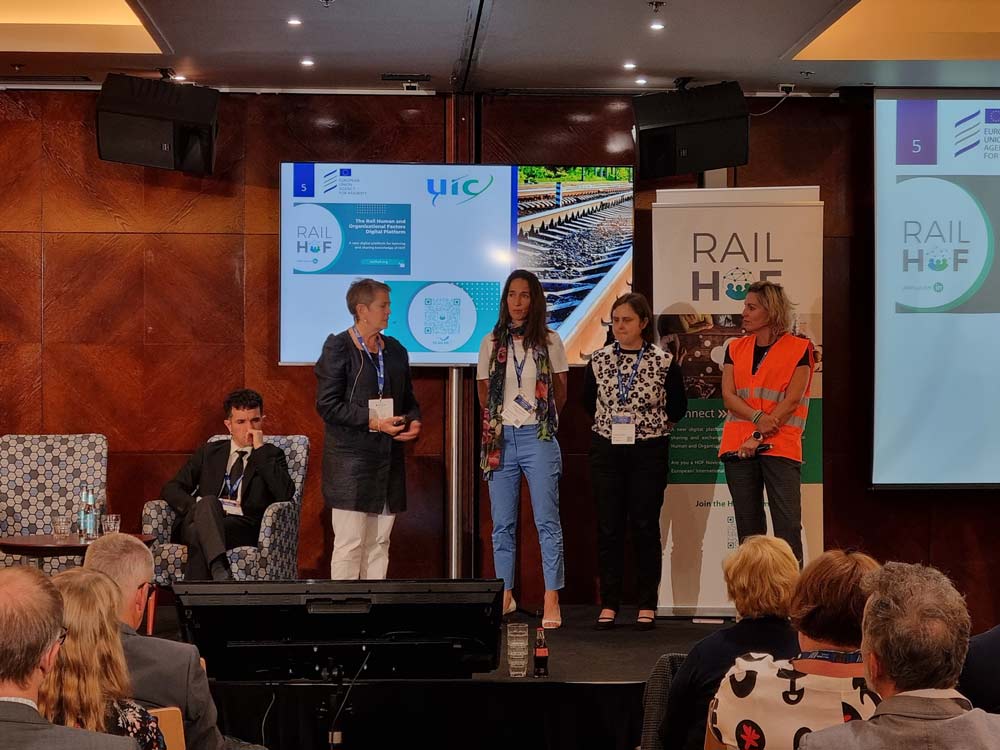
The conference featured presentations by experts and leaders from the railways and other high-risk industries, who addressed issues related to safety culture, accident investigations, innovative solutions for training of safety professionals and other topics.
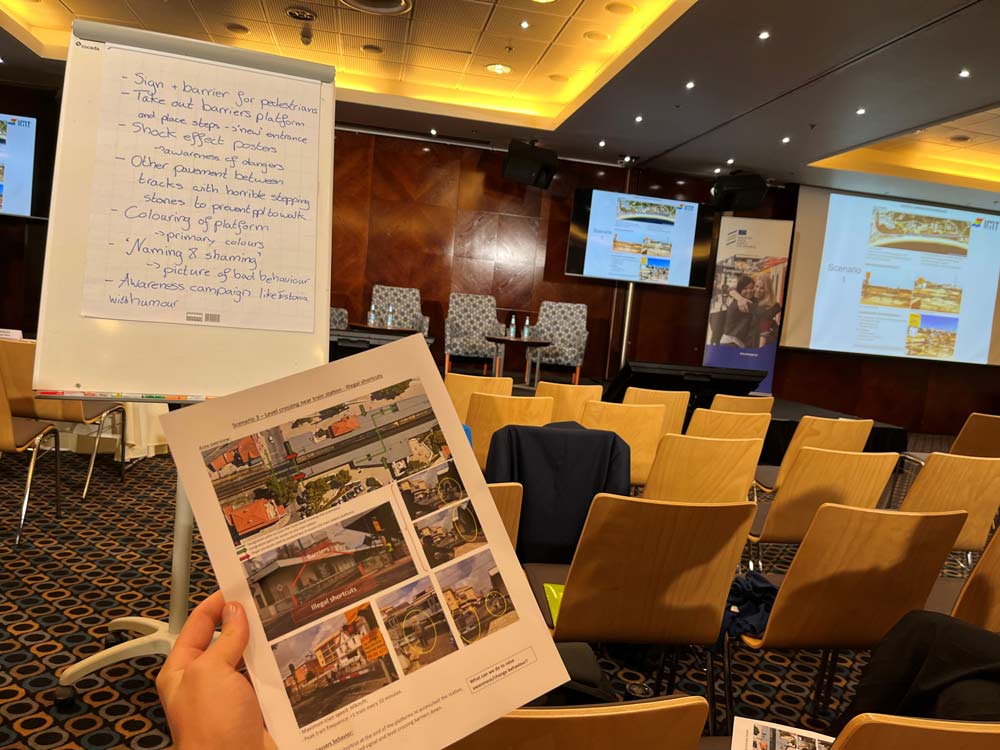
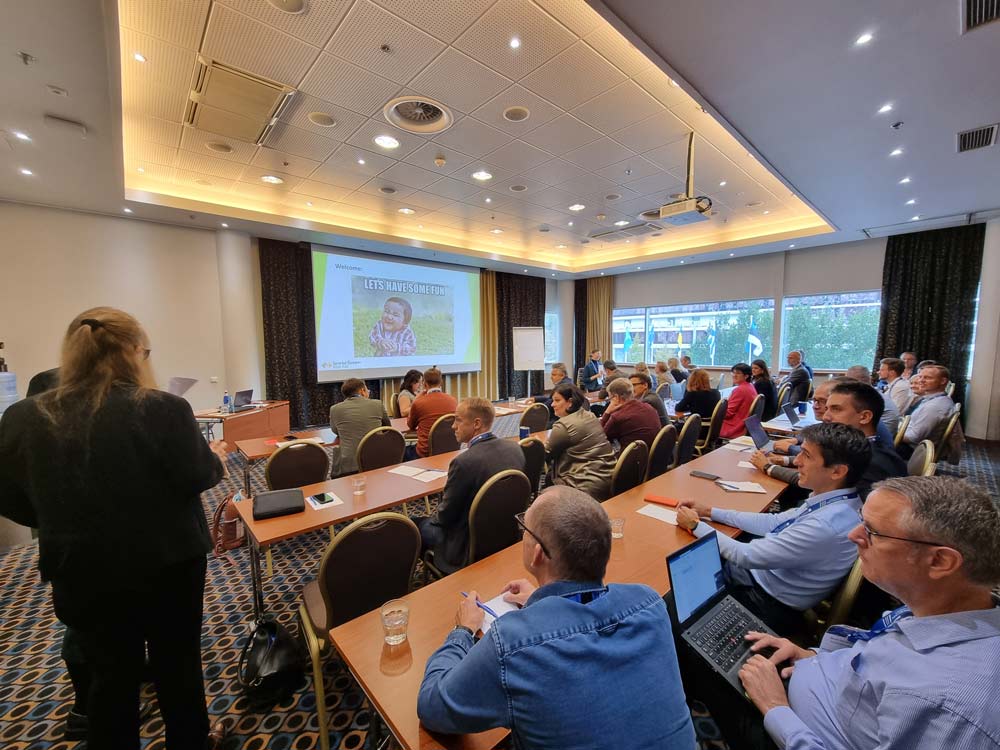
On the second day, the participants had the opportunity to participate in interactive workshops about how to learn from the practice of other branches of the economy that deal with safety, as well as how to learn from investigations and supervision in the field of railways.
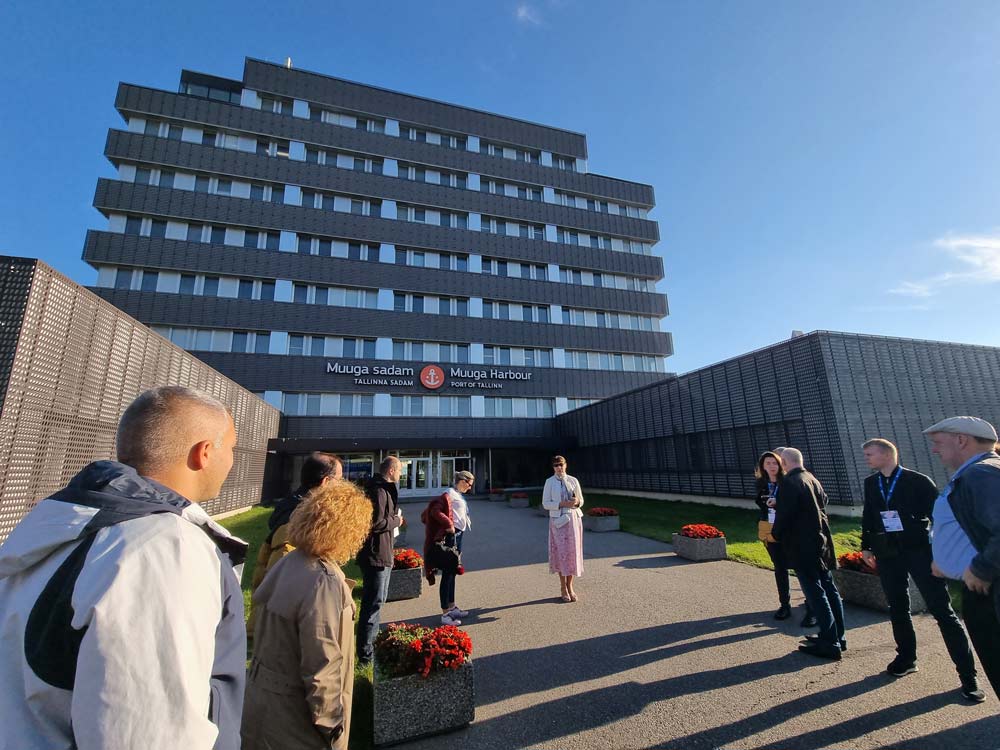
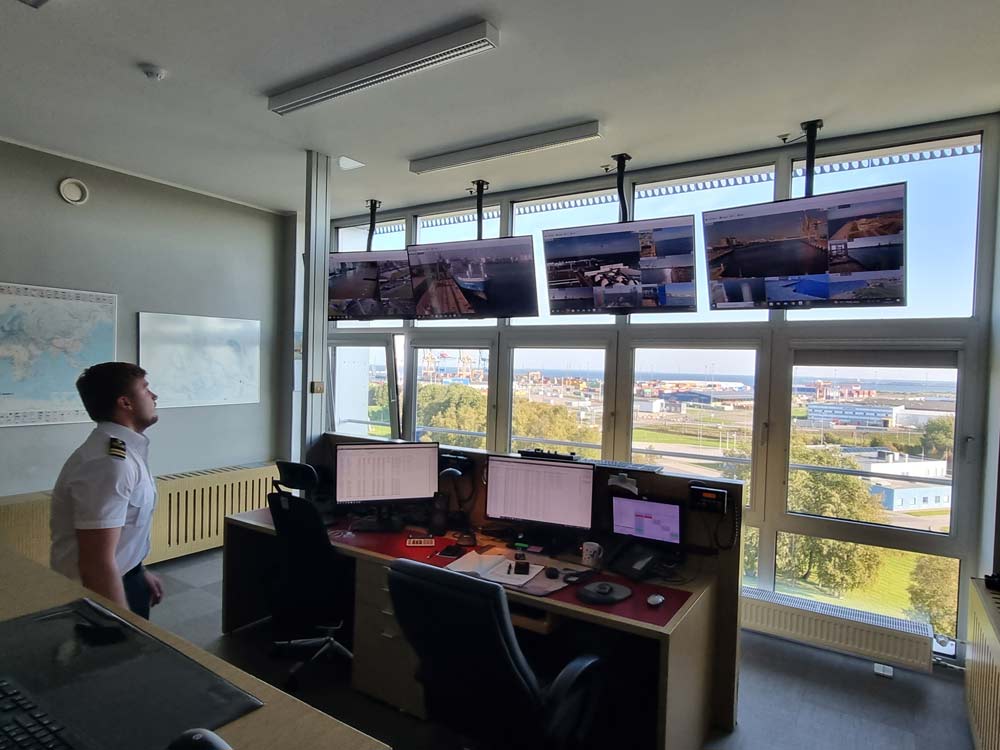
The third day was scheduled for a technical visit of the Muuga Harbour (visiting the multimodal terminal and dispatch facility), railway vehicles maintenance facilities at the depot of Elron (the only passenger transport operator in Estonia) and the Estonian Academy of Safety Sciences, which presented its skills related to accident management simulation in railway traffic.
22 August 2023
PRESENTATION OF A STUDY OF PLANNING AND DEVELOPMENT OF THE RAILWAY NETWORK OF THE REPUBLIC OF SERBIA
On 9 August 2023 in Belgrade, China Railway International Co. Ltd organized a meeting in the spirit of Chinese-Serbian friendship and successful cooperation in the realization of a number of significant projects in the field of railway infrastructure. The meeting presented a Study of Planning and Development of the Railway Network of the Republic of Serbia designed by China Railway Design Group Co. Ltd at the initiative of Wang Tongjun, Deputy General Manager of China Railways.

The meeting gathered representatives of the Ministry of Construction, Transport and Infrastructure, Directorate of Railways, "Srbija Voz" a.d., "Srbija Kargo" a.d., Infrastruktura železnice Srbije a.d., representatives of China Railway International Co. Ltd and China Railway Design Group Co. Ltd.
The study is based on the experiences and solutions of Chinese experts and will be a support for the development of Serbia's national railway infrastructure and an important basis for agreements regarding future projects and further cooperation between China and Serbia.

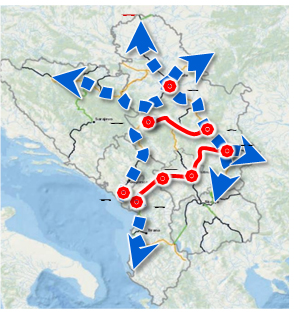
Among other things, this study includes: analysis of the current condition of the railway network and services in passenger and freight traffic, problems that need to be solved, an optimization plan with a special focus on strengthening connections and achieving interoperability with neighbouring countries, and the dynamics of implementation of the optimization plan.
05. July 2023.
COOPERATION WITH THE HUNGARIAN NATIONAL SAFETY AUTHORITY FOR RAILWAYS
Representatives of the Directorate for Railways and the Hungarian National Safety Authority for Railways met on 21 June 2023 in the premises of the Ministry of Construction, Transport and Infrastructure to discuss drafting an agreement on cooperation of national safety authorities of the two countries.

The agreement will deal with cooperation in the field of border traffic between Serbia and Hungary in terms of safety certificates, authorisations for placing in service of railway vehicles, joint supervision, etc.
Anita Dimoski, Assistant Minister, Lazar Mosurović, Acting Director of the Directorate for Railways and László Veszprémi, Director of the Hungarian National Safety Authority, welcomed all the participants to the meeting.

The Hungarian side offered solutions from the agreement between the Hungarian and Slovak national safety authorities as a basis for drafting the agreement. The analysis of the text concluded that a large number of provisions cannot be applied by the Directorate for Railways for the following reasons: Hungary is a member of the EU and the Republic of Serbia is not, the regulations applied in Hungary are harmonized with the 4th railway package, while the regulations in the Republic of Serbia are harmonized with the 3rd railway package, the competences of the EU Agency for Railways in terms of issuing safety certificates and authorisations for placing in service of railway vehicles are limited to the territory of the European Union, etc.
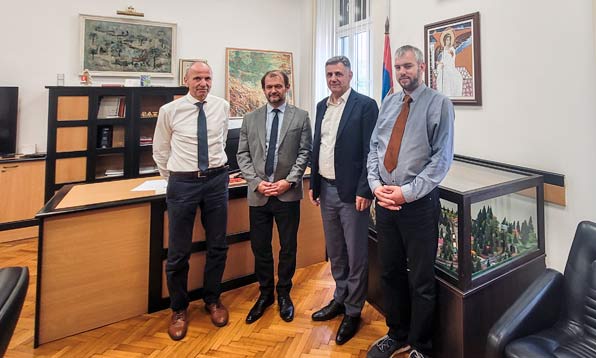
It was agreed that the Directorate for Railways would draft a new text of the agreement that will take into account the differences in the regulations in force in Hungary and the Republic of Serbia and offer solutions that will be acceptable to both parties. The next meeting will be held in Hungary in autumn this year.
04. July 2023.
OTIF – COMMITTEE OF TECHNICAL EXPERTS AND WG TECH MEETING
The 15th Session of the Committee of Technical Experts (CTE) and the 49th Session of the Working Group TECH (WG TECH) were held from 13 to 15 June 2023, in the organization of the OTIF Secretariat.

The meetings gathered representatives of the OTIF contracting states, European Union, European Union Agency for Railways, Community of European Railway and Infrastructure Companies (CER), Association of Notified Bodies (NB-Rail), Council of the Persian Gulf States and other participants who participated in the sessions either in person or remotely.
The CTE adopted the following documents: UTP GEN-E - Uniform Technical Prescriptions on the qualifications and independence of assessment bodies, UTP GEN-G – Uniform Technical Prescriptions on a common safety method for risk evaluation and assessment, Revision of the list of technical documents listed in Annex I of the UTP TAF - Uniform Technical Prescriptions on the telematics applications for freight and Revision of Guidelines for the application of UTP WAG and UTP Noise.

The Committee also adopted a draft of the Annex C to the Appendix H on the harmonized process of safety certification. The General Assembly of OTIF adopted the Appendix H of COTIF – Uniform Rules concerning safe operation of trains in international traffic in 2018. It will enter into force once it is ratified or otherwise accepted by at least 2/3 of the member states and the Secretary General is notified thereof. In the meantime, annexes to the Appendix H are being prepared.
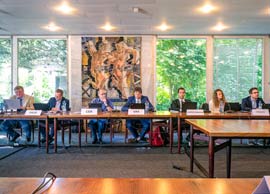
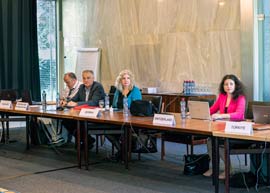
The meeting of the WG TECH discussed the following items: Draft Annex D to the Appendix H, which refers to the supervision of safety management systems, amendments to the Guidelines for the application of UTP LOC&PAS and amendments to the Guidelines for the application of UTP TCRC (Train Composition and Route Compatibility Checks). These documents will be finalized during the next two sessions of WG TECH by the end of 2023 and will be submitted for the adoption to the CET at its next session in June 2024.
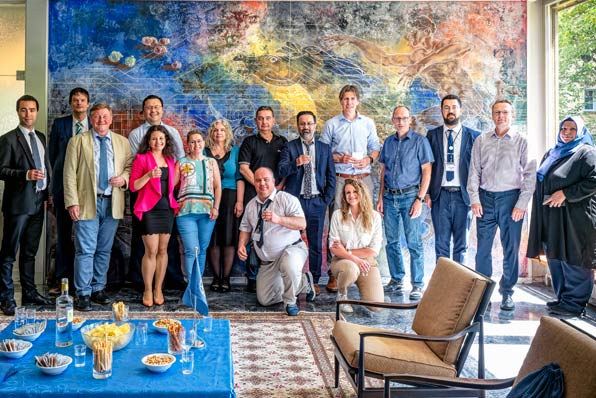
31. May 2023.
IRG-RAIL PLENARY ASSEMBLY HELD IN BONN ON 23 AND 24 MAY 2023
IRG-Rail’s Plenary Assembly met for its spring session in Bonn, chaired by Dr. Annegret Groebel and Prof. Dr. Karsten Otte from Bundesnetzagentur, Germany’s Regulatory Authority for Electricity, Gas, Telecommunications, Post and Railway. The President Klaus Müller gave a welcome speech addressing the representatives of 22 Regulatory Bodies on site and 8 connected remotely..

Source: IRG-Rail
In addition to reports from the Working Groups on the delivery of the work programme 2023 and the next planned activities, the IRG-Rail members addressed current developments in the railway sector and within IRG-Rail.
The Plenary adopted the following documents:
• IRG Rail’s Views on the European Commission initiative to better manage and coordinate European rail capacity and traffic management;
• Guidelines Service Facilities Description;
• Update of the table on time limits set for answering capacity requests according to Art. 9 (1) of the Implementing Regulation (EU) 2017/2177 on the access to service facilities and rail related service facilities.
• The 11th Annual Market Monitoring Report that was adopted by an electronic voting procedure ahead of the Plenary Assembly.
All four reports are published on this website (https://www.irg-rail.eu/).
The Plenary also elected Dragica Flam of the Croatian regulator HAKOM as new Co-Chair for the Access to Service Facilities Group.
The next IRG-Rail Plenary Assembly will be held in Berlin in November 2023.
5. May 2023.
IPA ERA ERTMS TRAINING
The European Union Agency for Railways (ERA) and the Transport Community, within the ERA IPA project financed by the European Commission, organized from 18 to 20 April 2023 in the premises of the CAF (Construcciones y Auxiliar de Ferrocarriles) company, a training on the challenges in the implementation of the ERTMS system (European Rail Traffic Management System).

The aim of the training was to inform the participants about the history, development and functioning of ERTMS, the advantages of ERTMS compared to national systems (class B), as well as about the legal framework related to the implementation of the ERTMS system.
ERTMS is a single European signaling and speed control system that ensures interoperability of the national railway systems, reducing the purchasing and maintenance costs of the signaling systems as well as increasing the speed of trains, the capacity of infrastructure and the level of safety in rail transport.
During the three-day training, lectures of experts from the European Union Agency for Railways (ERA) focused on some of the most important topics related to ERTMS. These topics included: legal framework and content of the TSI CCS and the specifications in Annex A; architecture of the ERTMS system, the principle of operation and the method of data transmission (communications) between the on-board and trackside part; evolution and development of ERTMS foreseen by the proposal of the new TSI CCS to be adopted in 2023, etc.

The training emphasized that ERTMS, in addition to interoperability, has numerous advantages compared to national systems (class B):
- better safety - continuous monitoring of train speed implies a higher level of safety compared to most national train protection systems,
- capacity increase - ERTMS enables the reduction of the minimum distance or time between trains, thus increasing train capacity,
- potential reduction of maintenance costs, etc.
In addition to theory, the participants also had practical training, which included a demonstration of the hardware and principles of the decentralized ETCS system level L1 in the testing centre of the CAF company. The participants also took a train ride on the Luxembourg-Ettelbruck line, where the practical part of the training was conducted in the driver's cab.
28. April 2023.
IPA TRAINING ON EUROPEAN VEHICLE REGISTER (EVR)
The European Union Agency for Railways (ERA) organized a training on the implementation of the European Vehicle Register (EVR), which was held on 25 April in the premises of the Transport Community in Belgrade. The Agency realized this event within the ERA IPA Project funded by the European Commission.

In accordance with the Commission Implementing Decision (EU) 2018/1614, the EU member states are gradually moving to the newly formed, centralized model of the European Vehicle Register. The new register will include the entire database of all EU railway vehicles and it will be under the exclusive competence of the European Union Agency for Railways (ERA). In 2022, ERA made a decision to provide free access to the EVR for the EU candidate and potential candidate countries.
The new register has an almost identical structure to the National Vehicle Register (NVR), which the participants of the training had the opportunity to see through practical exercises. The biggest novelty compared to the current register is that the entire process of registering a vehicle in the register is done electronically via a special link located on the ERA website. Vehicle registration is performed exclusively by the owner of the railway vehicle by filling in the data in an electronic form, after which the National Safety Authority, i.e. the Directorate for Railways in Serbia, controls the accuracy of the data and approves the registration.

The training concluded that the transfer of data from the National Vehicle Register (NVR) to the European Vehicle Register (EVR) and the use of the new register require a thorough preparation in cooperation with the European Union Agency for Railways.
26. April 2023.
Mokra Gora – Meeting on Border Railway Traffic between Serbia and Montenegro
Representatives of the railway sector of Serbia and Montenegro met on April 20 at Mokra Gora on the occasion of the near completion of construction works on the railway station in Bijelo Polje, the future joint border station of Serbia and Montenegro. In front of the delegation of the railway sector from Serbia, Lazar Mosurović, acting director of the Directorate for Railways, greeted the participants. In his opening speech, he emphasized the importance of this meeting, especially considering that it is being held at the time of the completion of the works and the planned opening of the reconstructed railway station in Bijelo Polje, a project of exceptional importance for Serbia and Montenegro.

Miroslav Brajović, the president of the Board of Directors of "Montekargo", a Montenegrin freight railway undertaking, emphasized the great importance of this railway station in the border traffic between Serbia and Montenegro, especially when it comes to freight traffic. The meeting also presented the plans related to better and more efficient operation in border traffic, including the implementation of telematics applications for the transport of passengers and freight in accordance with the technical specifications of interoperability of the European Union (TSI TAF/TAP). In addition, "Infrastructure of Serbian Railways" JSC announced the beginning of works on the completion of the narrow-gauge heritage railway from Šargan Vitasi station to Kremna, which will further increase the importance of the entire Kremna region. Representatives of the Railway Infrastructure of Montenegro and the company "Montekargo" briefly presented their companies, as well as their plans for the next period, with special reference to the upcoming tourist season and the announcement of an increase in the volume of freight transport on the Bar railway. The meeting ended with the presentation of the tourist offer of the heritage railway "Šarganska Osmica" (Šargan Eight), as well as the history and traffic of the heritage train named "Nostalgia", after which the members of the delegation had the opportunity to take a ride on the famous railway "Šarganska Osmica".
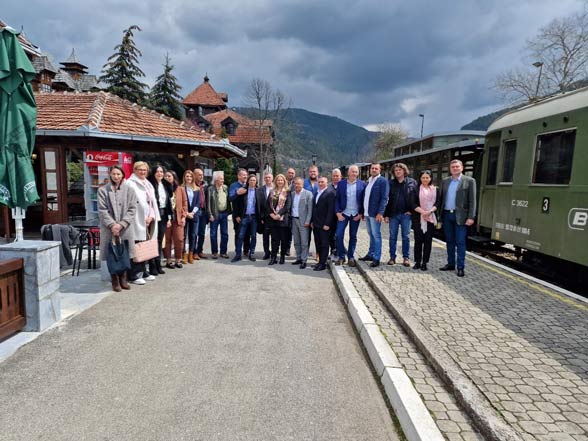
Representatives of the Montenegrin and Serbian railway sectors plan to continue their cooperation at the beginning of June in Podgorica, where they will meet with representatives of the railway sector of the Republic of Srpska.
25. April 2023.
Innsbruck - Seminar on Transportation by Ropeways
O.I.T.A.F. (International Organization For Transport By Rope), one of the most important international organizations for all types of ropeway transport, organized on 20 April 2023 in Innsbruck, Austria, an international scientific and professional seminar on the expansion of passenger transportation by cable cars. O.I.T.A.F. currently has 155 members from 35 countries, 6 technical commissions and 2 working groups that deal with all technical matters related to cable cars.

The meeting, which is held once a year, gathered a large number of experts in the field of cableways, representatives of cable car operators, representatives of national authorities in charge of transportation by ropeways, representatives of large companies in the field of production, distribution and installation of cableway systems and accompanying equipment, including a representative of the Directorate for railways.
In accordance with world trends, some of the main topics of lectures and discussions were the implementation of cableway systems in urban areas, sustainable development of these transportation systems, assessment of the impact of the implementation and maintenance of these systems on the environment, etc.
The lecture by Dr Konstantin Kühner from the company Jakob Rope Systems, on the subject of the expansion of the use of ropeway systems in urban areas, as well as the challenges faced by the components of these systems when operating in different conditions compared to mountainous areas, attracted special attention. His presentation concluded that the maintenance costs of cable cars in urban areas are much higher than the maintenance costs of ski lifts in mountainous regions, and that this should be taken into account when planning the implementation of these systems.
The seminar, as well as a series of lectures on the topic of cableway systems, was held as part of the fair INTERALPIN INSPIRATION DAYS 2023, which was held from 20 to 22 April 2023 in Innsbruck.
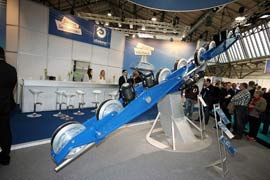

In addition to the presentation of a large number of systems and products of some of the most important manufacturers of cable cars and accompanying equipment, the fair also included the most modern innovations in the transportation of passengers by cable cars. On more than 40,000 square meters, more than 650 exhibitors from almost 117 countries presented the most modern installations for passenger transportation, equipment for generating artificial snow, ticket collection and passenger counting systems, security equipment, equipment for the preparation and maintenance of ski slopes and roads, control and monitoring equipment etc.
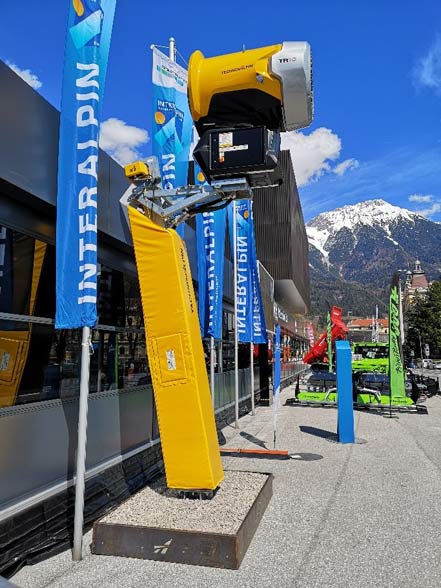
The greatest attention of the visitors was attracted by the presentation and demonstration of the snow cannons for artificial snowmaking, the latest Ghost system, which is characterized by a hidden casing buried in the ground, with the possibility of extension to up to 7 meters, which represents a new level in the safety of skiers on the ski trails.
23. december 2022.
INTEROPERABILITY TRAINING – NOVI SAD
European Union Agency for Railways - ERA, in cooperation with the Directorate for Railways, organized Interoperability Training held on 13-15 December 2022 in Novi Sad. This event brought together around 40 participants from the EU candidate countries, Denmark, Romania, representatives of the Transport Community and the EU Delegation in Serbia.

The most important topic of the training was the implementation of Technical Specifications for Interoperability (TSI) in accordance with the Interoperability Directive (Directive (EU) 2016/797) and their relation with national rules. Namely, in order to eliminate obstacles to interoperability and as a consequence of extending the scope of the TSIs to the entire railway system of the Union, the volume of national technical rules should be progressively reduced. EU Railway Agency (ERA) has already organized several meetings on this topic with the representatives of the railway institutions of the Western Balkans and Turkey with the aim of providing them with technical assistance to reduce the scope of national rules in line with the EU member states. This process will continue at the regional level in cooperation with the Transport Community.
The training also covered the certification of train drivers, roles of National Safety Authorities and employers in accordance with the Train Driver Directive (Directive (EU) 2016/797), criteria for the recognition of training centres and interoperability registers kept by the EU Railway Agency (EVR, RINF, etc.). ERA also announced its IPA activities for 2023, which will include a workshop on training and licensing of train drivers, as well as several trainings related to the European Vehicle Register. Thanks to the extension of the contract between the EU Railway Agency and the European Commission - DG NEAR, ERA will continue to support the railway institutions of IPA beneficiaries in their efforts to approach European standards in cooperation with the Transport Community and in accordance with its Action Plan for rail transport.
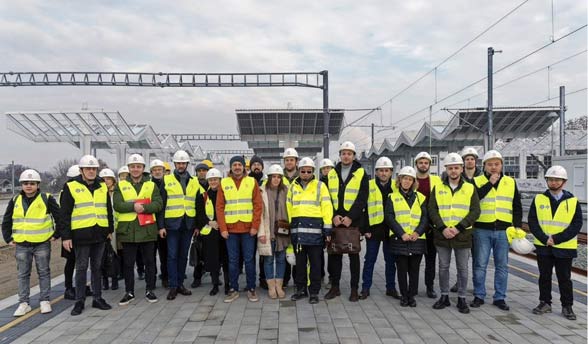
At the end of the training, the participants were invited for a technical visit to the construction site of the high-speed railway on the Novi Sad - Subotica section, which was organized by the Serbian infrastructure manager "Infrastruktura železnice Srbije" a.d. and the contractor, a Chinese consortium of "China Railway International" and "China Communications Construction Company".


